Saturday, August 21 2021
 Do you believe it's August already? Where did the summer go. Anyway, this month we have the question: do you have any character habits or favorite words that always crop up in your writing? Do you believe it's August already? Where did the summer go. Anyway, this month we have the question: do you have any character habits or favorite words that always crop up in your writing?
XX
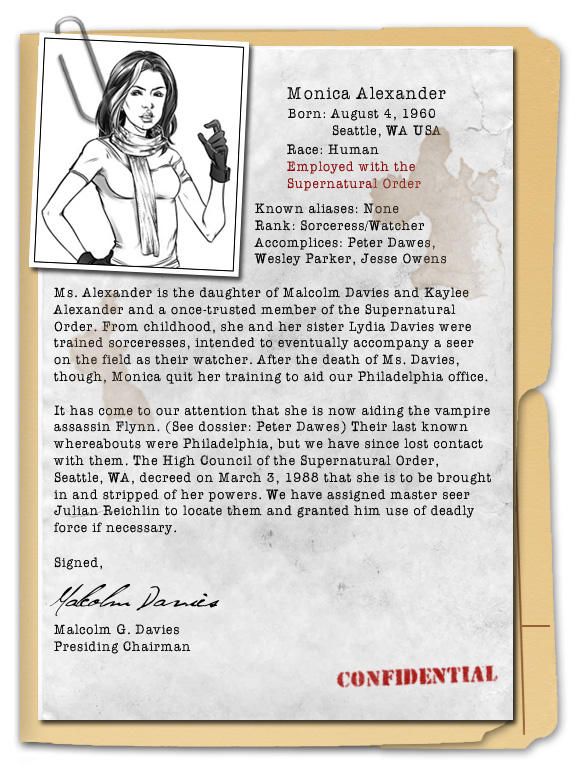 I’d like to think that this doesn’t apply to my writing. Being a pantser with mostly character driven stories, I create thorough dossiers on all my main characters, both recurring in a series or for stand alone books. Usually, I end up knowing where they were born, how they reacted to kindergarden, what their life was like in high school and college etc. In doing so, I use a number of sources like birth order, family history, books like Building Believable characters and Writer’s Digest Guide to Character Traits. I also borrow from people I know, and characters on TV. So, I try to create characters with habits and speech patterns that are distinctively theirs. I’d like to think that this doesn’t apply to my writing. Being a pantser with mostly character driven stories, I create thorough dossiers on all my main characters, both recurring in a series or for stand alone books. Usually, I end up knowing where they were born, how they reacted to kindergarden, what their life was like in high school and college etc. In doing so, I use a number of sources like birth order, family history, books like Building Believable characters and Writer’s Digest Guide to Character Traits. I also borrow from people I know, and characters on TV. So, I try to create characters with habits and speech patterns that are distinctively theirs.
XX
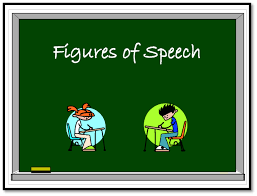 A young man I worked with as a reenactor constantly used the phrase “fair enough,” which intrigued me and I’ve endowed one or more of my characters with that habit of speech. Other speech patterns I’ve adopted for my characters come from specific career choices. If one of my characters is a cop, some of the familiar bits of cop talk will become part of their vocabulary that would be very different from the man who wears a suit and works in an office or a seventy-five year old cat lady, or a child. Because I am none of these (Well, I admit to the seventy-five, but deny the lady part and I don’t have cats.) I do a lot of eavesdropping. I volunteer at the USO lounge at the airport and it’s a great place to pick up odds and A young man I worked with as a reenactor constantly used the phrase “fair enough,” which intrigued me and I’ve endowed one or more of my characters with that habit of speech. Other speech patterns I’ve adopted for my characters come from specific career choices. If one of my characters is a cop, some of the familiar bits of cop talk will become part of their vocabulary that would be very different from the man who wears a suit and works in an office or a seventy-five year old cat lady, or a child. Because I am none of these (Well, I admit to the seventy-five, but deny the lady part and I don’t have cats.) I do a lot of eavesdropping. I volunteer at the USO lounge at the airport and it’s a great place to pick up odds and  ends of military jargon and speech habits, one of which is Sir and Ma’am for everyone. That’s also a regional thing as well. In New England, where I grew up, the only person who ever called me Ma’am was the soldier who called our office daily to report in to my boss who was his commanding officer in the reserves, but here in the south it's as common as cornbread and sweet tea. ends of military jargon and speech habits, one of which is Sir and Ma’am for everyone. That’s also a regional thing as well. In New England, where I grew up, the only person who ever called me Ma’am was the soldier who called our office daily to report in to my boss who was his commanding officer in the reserves, but here in the south it's as common as cornbread and sweet tea.
XX
 Regional dialect is another way of differentiating your characters and settings, so listening to natives of an area helps to pick out themes and habits of speech to add authenticity to your characters. An author can easily go a little overboard with some dialect, though, and totally lose the reader because every sentence is littered with dialect. I have a book out set in 1775 with a hero from Scotland. So, I was careful to choose just a few typical Scots/Gaelic words to set his dialog apart from my heroine who is a time traveler from the 20th century and made sure she had a few very late 1900s phrases and expressions in hers. Regional dialect is another way of differentiating your characters and settings, so listening to natives of an area helps to pick out themes and habits of speech to add authenticity to your characters. An author can easily go a little overboard with some dialect, though, and totally lose the reader because every sentence is littered with dialect. I have a book out set in 1775 with a hero from Scotland. So, I was careful to choose just a few typical Scots/Gaelic words to set his dialog apart from my heroine who is a time traveler from the 20th century and made sure she had a few very late 1900s phrases and expressions in hers.
XX
 But I admit that personal speech patterns tend to sneak their way into my writing. Like the use of the word “so” at the start of the last sentence in the previous paragraph. I’ve listened to recordings of myself and “so” litters my dialog, along with other totally useless words. Often in my personal speech, I use “ing” words – for instance, “Don’t be telling me that.” Or “I’ll be going now.” Both sentences in another person’s speech might be said as, “Don’t tell me that.” Or, “I’m off.” Most of this personal stuff ends up getting cut in the multiple rounds of editing, but occasionally they get overlooked. I doubt this is just a quirk of mine. We all have personal ways of speaking that just normally show up in our writing, but I’m guessing we all do a lot of editing to get rid of those repetitive things. But I admit that personal speech patterns tend to sneak their way into my writing. Like the use of the word “so” at the start of the last sentence in the previous paragraph. I’ve listened to recordings of myself and “so” litters my dialog, along with other totally useless words. Often in my personal speech, I use “ing” words – for instance, “Don’t be telling me that.” Or “I’ll be going now.” Both sentences in another person’s speech might be said as, “Don’t tell me that.” Or, “I’m off.” Most of this personal stuff ends up getting cut in the multiple rounds of editing, but occasionally they get overlooked. I doubt this is just a quirk of mine. We all have personal ways of speaking that just normally show up in our writing, but I’m guessing we all do a lot of editing to get rid of those repetitive things.
XX
 As for habits – it’s easy to use personal habits because you live them every day and you don’t have to go thinking them up. If you love to jog, it’s easy to give your character that habit as well because you don’t have to think about when, where, how, why how it makes the character feel etc. But let’s face it, not every character you create can be a jogger so you have to borrow from others. I Hope you borrow from others, or your characters will begin to blur together. As for habits – it’s easy to use personal habits because you live them every day and you don’t have to go thinking them up. If you love to jog, it’s easy to give your character that habit as well because you don’t have to think about when, where, how, why how it makes the character feel etc. But let’s face it, not every character you create can be a jogger so you have to borrow from others. I Hope you borrow from others, or your characters will begin to blur together.
XX
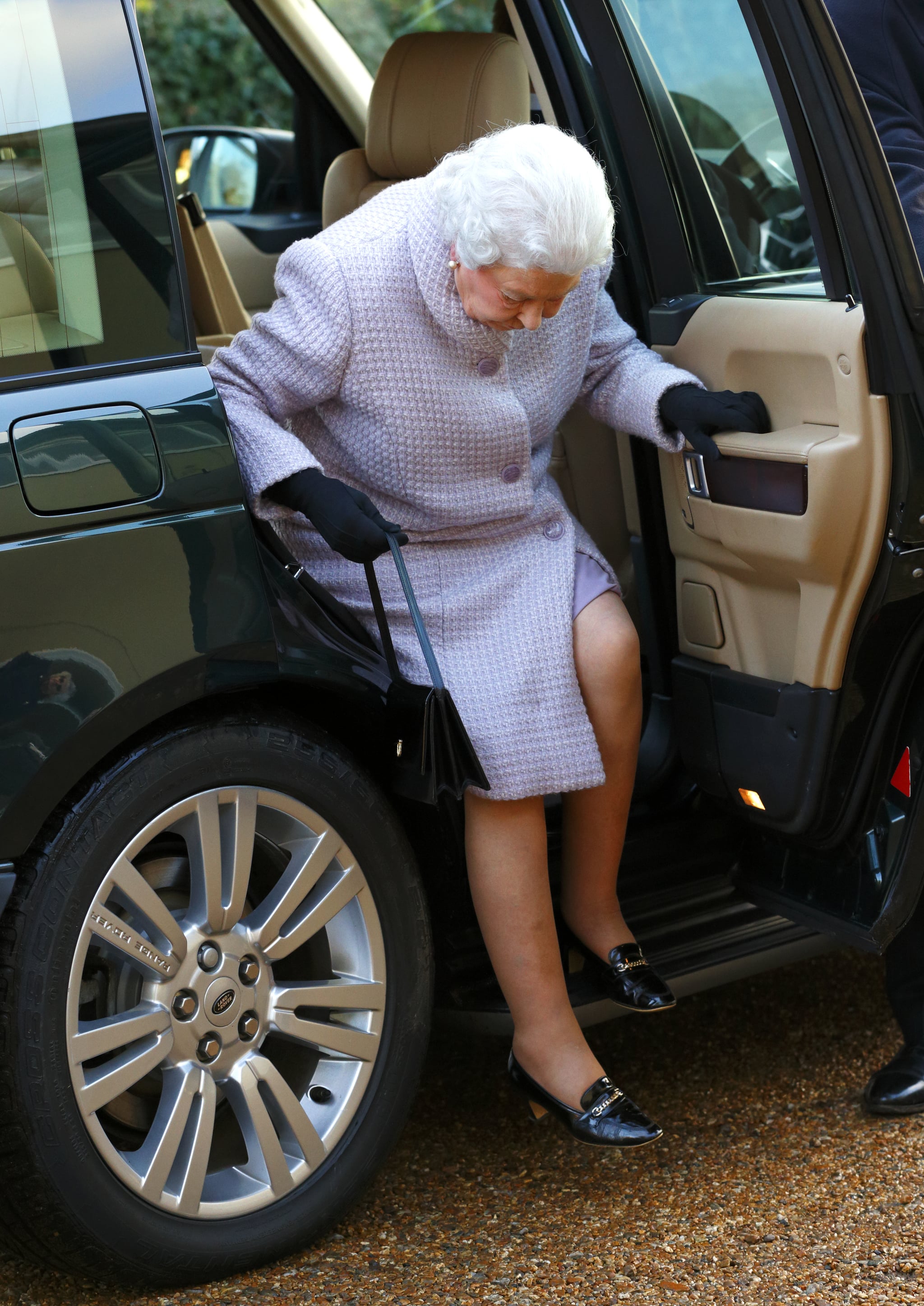 I know writers who have had careers in law enforcement (or are close to someone who has) and their characters always “exit” their vehicles. Sounds like cop talk and isn't very descriptive of the activity. Perhaps some of their characters should climb out, or slide out depending on the type of car or truck, or the size and age of the person because it adds more variety, not just to the narrative, but to the characters themselves. The same could be applied to coffee drinkers. A large portion of Americans are coffee drinkers, but not all to the same level. Some folks can’t function without that first jolt of high caffeine heat. Others are more laid back about their coffee drinking and still others drink tea instead. I know writers who have had careers in law enforcement (or are close to someone who has) and their characters always “exit” their vehicles. Sounds like cop talk and isn't very descriptive of the activity. Perhaps some of their characters should climb out, or slide out depending on the type of car or truck, or the size and age of the person because it adds more variety, not just to the narrative, but to the characters themselves. The same could be applied to coffee drinkers. A large portion of Americans are coffee drinkers, but not all to the same level. Some folks can’t function without that first jolt of high caffeine heat. Others are more laid back about their coffee drinking and still others drink tea instead.
XX
 As an author, it can be so easy to just put your writing in cruise control and let what is most familiar to you take over. But if you want your characters to stand out, have personalities of their own, you have to avoid letting your personal habits loom so large. Let one of your guys play golf even if you’ve never picked up a club in your life. Have another jump out of airplanes or knit. Just as your characters’ names, careers, and physical descriptions are different, so should their speech, habits and hobbies. As an author, it can be so easy to just put your writing in cruise control and let what is most familiar to you take over. But if you want your characters to stand out, have personalities of their own, you have to avoid letting your personal habits loom so large. Let one of your guys play golf even if you’ve never picked up a club in your life. Have another jump out of airplanes or knit. Just as your characters’ names, careers, and physical descriptions are different, so should their speech, habits and hobbies.
XX
But that’s just my opinion. Why not check out these authors and see what their take on this month’s question is…
XX
 Anne Stenhouse Anne Stenhouse
Victoria Chatham
Connie Vines
Diane Bator
Beverley Bateman
Dr. Bob Rich
Fiona McGier
Helena Fairfax
Rhobin Courtright
Judith Copek
Saturday, July 17 2021
 Our Round Robin Blog Hop for July asks this question -- Do you ever delete scenes? When and why do you delete them? And what do you do with them? Do you save them? Or just toss them? Our Round Robin Blog Hop for July asks this question -- Do you ever delete scenes? When and why do you delete them? And what do you do with them? Do you save them? Or just toss them?
XX
 Every book I start has a folder and one of the first files in that folder along with the book bible is one called Bits & Pieces. To start with, since I’m not a plotter, and not all my writing is done linear so I pop scenes that come to me, but aren’t ready to Every book I start has a folder and one of the first files in that folder along with the book bible is one called Bits & Pieces. To start with, since I’m not a plotter, and not all my writing is done linear so I pop scenes that come to me, but aren’t ready to 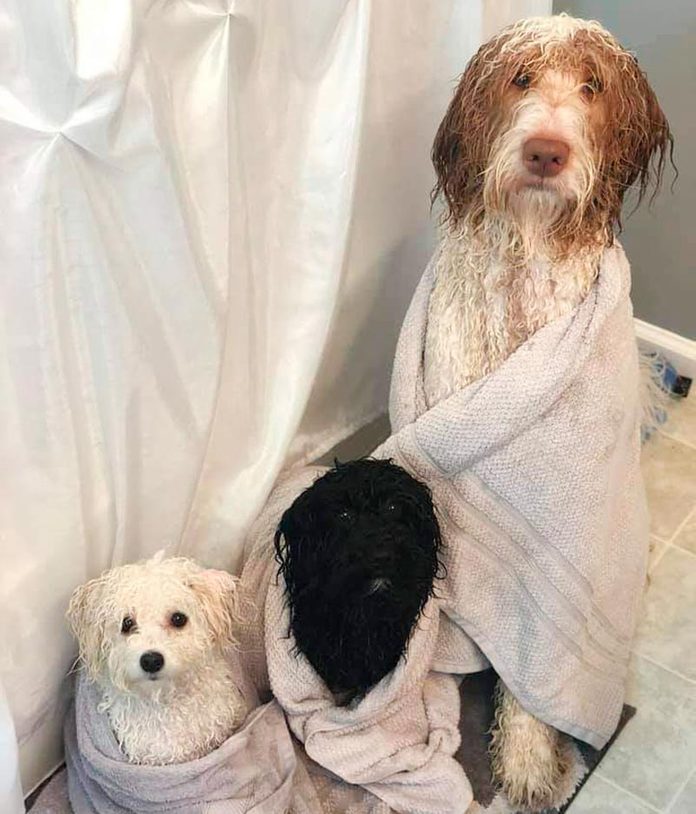 appear in the book in this file. Sometimes, as I lay in bed waiting for sleep to claim me, or while walking on the beach without earbuds and someone else’s book playing back in my ear, whole scenes will come to me. Sometimes it’s a conversation two of my characters have, or sometimes it’s a vivid scene, complete with all the senses of something that happens to them. Early on in my writing career, other authors suggested keeping a notebook by my bed to jot down these thoughts and ideas, or carrying a small recorder to pop them into. appear in the book in this file. Sometimes, as I lay in bed waiting for sleep to claim me, or while walking on the beach without earbuds and someone else’s book playing back in my ear, whole scenes will come to me. Sometimes it’s a conversation two of my characters have, or sometimes it’s a vivid scene, complete with all the senses of something that happens to them. Early on in my writing career, other authors suggested keeping a notebook by my bed to jot down these thoughts and ideas, or carrying a small recorder to pop them into.  The recorder might work in the car or while on the beach, but I’ve learned that if I have an idea in bed at night – just get up, wake the computer up and start typing while all the thoughts are fresh and clear. It helps that I’m retired from my 9-5 job and it’s okay to be working on a book at 2:00 am. I put whatever I type up into my Bits & Pieces file. Same goes for brilliant bits that hit me in the shower – skip picking out clothes and getting dressed first – just wrap a towel around myself and go type it all up right now. The recorder might work in the car or while on the beach, but I’ve learned that if I have an idea in bed at night – just get up, wake the computer up and start typing while all the thoughts are fresh and clear. It helps that I’m retired from my 9-5 job and it’s okay to be working on a book at 2:00 am. I put whatever I type up into my Bits & Pieces file. Same goes for brilliant bits that hit me in the shower – skip picking out clothes and getting dressed first – just wrap a towel around myself and go type it all up right now.
XX
 Since I already have this file in my book folder – if for one reason or another a scene currently already in the story isn’t working, why toss all that work out when I can cut and paste it into the Bits & Pieces file. You never know if part or all of it might fit really well somewhere else. I have in the past cut huge chunks of text that weren’t working and hit delete, then days later or weeks later, I come to a place where I think – OMG – this is where that scene should be, only it’s gone. Along with anything that was really brilliant about it. But if it’s the Bits & Pieces file I can go copy it and drag it back into the manuscript. Might need significant editing or rearranging, but still, the ideas, words, thoughts and dialog are there to get started with. Since I already have this file in my book folder – if for one reason or another a scene currently already in the story isn’t working, why toss all that work out when I can cut and paste it into the Bits & Pieces file. You never know if part or all of it might fit really well somewhere else. I have in the past cut huge chunks of text that weren’t working and hit delete, then days later or weeks later, I come to a place where I think – OMG – this is where that scene should be, only it’s gone. Along with anything that was really brilliant about it. But if it’s the Bits & Pieces file I can go copy it and drag it back into the manuscript. Might need significant editing or rearranging, but still, the ideas, words, thoughts and dialog are there to get started with.
XX
 So, why would I cut a scene from a manuscript. So many reasons. One I’ve already hinted at – didn’t fit in that particular chapter or place. Maybe didn’t fit in this book at all, but who knows … I write series … it might fit in a later book, just change the names if appropriate. Another reason for removing a scene is that it does not move the plot forward. You might love the clever wording or the sparkling dialog you created, but it does absolutely nothing for the plot. Or you might realize as you go back over it, that it is mostly info-dump. And any good author knows there are other ways to tell a reader things they need to know without large chunks of infodump which drag the pace to a standstill and tend to bore the reader. So, why would I cut a scene from a manuscript. So many reasons. One I’ve already hinted at – didn’t fit in that particular chapter or place. Maybe didn’t fit in this book at all, but who knows … I write series … it might fit in a later book, just change the names if appropriate. Another reason for removing a scene is that it does not move the plot forward. You might love the clever wording or the sparkling dialog you created, but it does absolutely nothing for the plot. Or you might realize as you go back over it, that it is mostly info-dump. And any good author knows there are other ways to tell a reader things they need to know without large chunks of infodump which drag the pace to a standstill and tend to bore the reader.
XX
 Sometimes I remove a scene – temporarily. I realize my timing is all wrong. This often happens when I am editing after the first draft is done, or if I’ve been away from my book for a while and come back needing to go back over what I’d written previously to get myself in gear again. And suddenly I realize I’ve gotten things happening in the wrong order. The POV character learns something they can’t know until somewhere later in the story, or yesterday this guy got shot and today, instead of being in a hospital bed where he belongs, he’s going surfing with a buddy or back on the beat. I need to give him time to recover first. In the last chapter this kid celebrated his 12th birthday and today he’s driving a car? If you don’t have a timeline in mind or sketched out when you start, it’s easy to get things out of order. So, you need to clip scenes and drop them elsewhere in the manuscript, or in my case, in the Bits & Pieces file until the right time and place appears. Sometimes I remove a scene – temporarily. I realize my timing is all wrong. This often happens when I am editing after the first draft is done, or if I’ve been away from my book for a while and come back needing to go back over what I’d written previously to get myself in gear again. And suddenly I realize I’ve gotten things happening in the wrong order. The POV character learns something they can’t know until somewhere later in the story, or yesterday this guy got shot and today, instead of being in a hospital bed where he belongs, he’s going surfing with a buddy or back on the beat. I need to give him time to recover first. In the last chapter this kid celebrated his 12th birthday and today he’s driving a car? If you don’t have a timeline in mind or sketched out when you start, it’s easy to get things out of order. So, you need to clip scenes and drop them elsewhere in the manuscript, or in my case, in the Bits & Pieces file until the right time and place appears.
XX
 Another reason scenes get removed is when I discover I’ve painted myself into corner with no way out. Chances are these places will end up in a circular file eventually, but for now, they go into Bits & Pieces with other things I haven’t decided where to put. Even if the corner isn’t totally inescapable, I might be looking at a huge sagging middle. I stare at the manuscript, and remember, I’m a pantser here so I can’t just refer to my detailed plot outline (which I don’t have) and figure out where to go next. Often I can get over this hump by asking myself some serious questions about how important all the recent scenes that got me into this slump are. Maybe they contain stuff that I absolutely need to have, but maybe they would be better if I rewrote them from scratch. Or just move them to that other file for now, play with them there and save them for later. Or maybe they just aren’t that important after all. Or they just don’t fit this story. Another reason scenes get removed is when I discover I’ve painted myself into corner with no way out. Chances are these places will end up in a circular file eventually, but for now, they go into Bits & Pieces with other things I haven’t decided where to put. Even if the corner isn’t totally inescapable, I might be looking at a huge sagging middle. I stare at the manuscript, and remember, I’m a pantser here so I can’t just refer to my detailed plot outline (which I don’t have) and figure out where to go next. Often I can get over this hump by asking myself some serious questions about how important all the recent scenes that got me into this slump are. Maybe they contain stuff that I absolutely need to have, but maybe they would be better if I rewrote them from scratch. Or just move them to that other file for now, play with them there and save them for later. Or maybe they just aren’t that important after all. Or they just don’t fit this story.
XX
 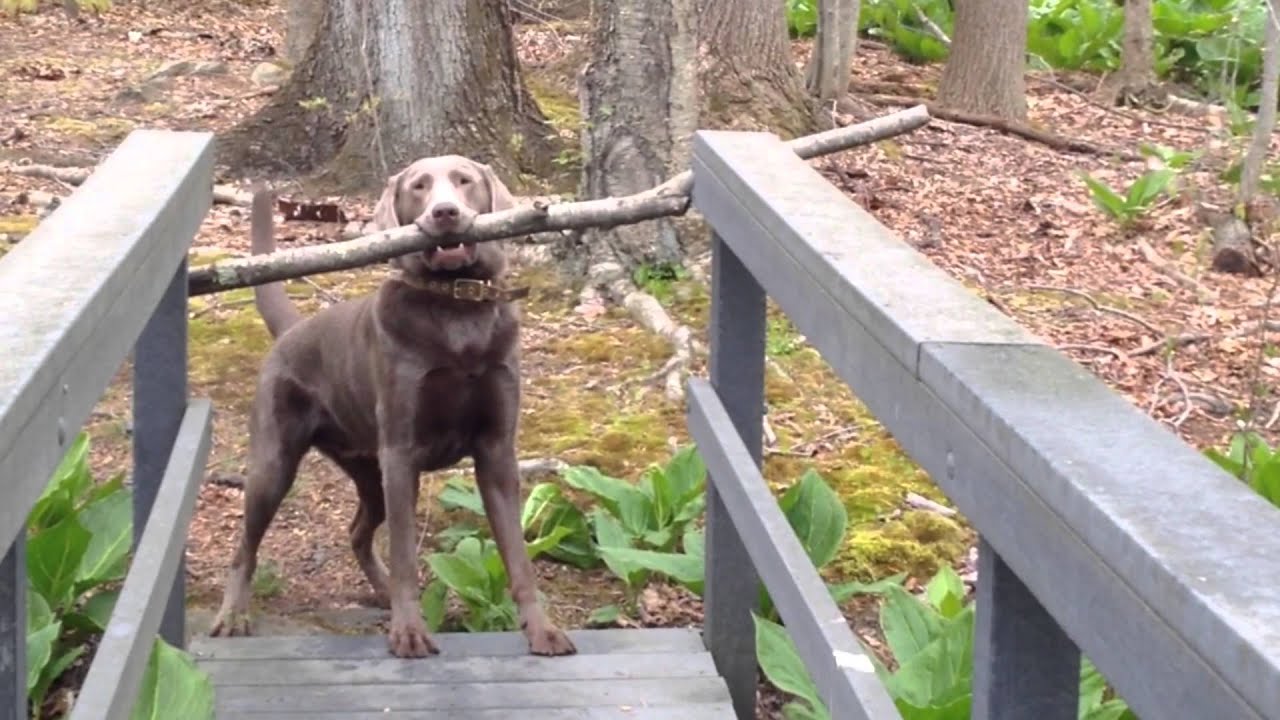 Dealing with scenes that don’t work where I’ve got them is like when my puppy finds a lovely big stick on the beach and drags it home, then tries to bring it into the house, but it won’t fit through the door. She backs up and tries again, tilting her head one way, then the other. Drops it and picks it up in a different place and tries again. Still won’t go. Eventually she either gives up deciding she really didn’t need that stick after all, or she carefully grabs it by one end and drags it through the door. And sometimes she leaves it on the step for the next time she comes out to play. Might have been a great stick but it didn’t fit where she initially wanted to take it. Dealing with scenes that don’t work where I’ve got them is like when my puppy finds a lovely big stick on the beach and drags it home, then tries to bring it into the house, but it won’t fit through the door. She backs up and tries again, tilting her head one way, then the other. Drops it and picks it up in a different place and tries again. Still won’t go. Eventually she either gives up deciding she really didn’t need that stick after all, or she carefully grabs it by one end and drags it through the door. And sometimes she leaves it on the step for the next time she comes out to play. Might have been a great stick but it didn’t fit where she initially wanted to take it.
XX
 So, now you know what I do about cutting scenes – hop on over and see how these authors deal with cutting – or not cutting – their favorite scenes, or scenes that don’t belong. So, now you know what I do about cutting scenes – hop on over and see how these authors deal with cutting – or not cutting – their favorite scenes, or scenes that don’t belong.
XX
Anne Stenhouse
Dr. Bob Rich
Connie Vines
Marci Baun
Victoria Chatham
Beverley Bateman
Fiona McGier
Helena Fairfax
Rhobin L Courtright
Saturday, June 19 2021
 Our June Round Robin Blog is digging into - How authors recognize and overcome plot problems or failures? Our June Round Robin Blog is digging into - How authors recognize and overcome plot problems or failures?
XX
The first thing that occurs to me is that the answer to this question might be very different for Plotters vs Pantsers. So, since I’m a pantser, I’ll answer from my point of view and let the plotters in our group share their methods.
XX
 Since the bulk of my books begin with a germ of an idea that I nurture with detailed character dossiers and a well-considered Goal/Motivation/Conflict chart for each, my writing is basically an adventure that I am on as much as my readers. I have no idea what’s going to happen next. With one main exception – I always know how the story will end. In fact, I’ve often written the final scene or chapter before I start the book because I can see it so clearly in my head. But once I’ve got my characters who I know as well as I know myself, I plop them into the inciting incident and let them run with the ball, so to speak. Since the bulk of my books begin with a germ of an idea that I nurture with detailed character dossiers and a well-considered Goal/Motivation/Conflict chart for each, my writing is basically an adventure that I am on as much as my readers. I have no idea what’s going to happen next. With one main exception – I always know how the story will end. In fact, I’ve often written the final scene or chapter before I start the book because I can see it so clearly in my head. But once I’ve got my characters who I know as well as I know myself, I plop them into the inciting incident and let them run with the ball, so to speak.
XX
 The first inkling I might have that there is a plot problem or failure is that my characters seem to have wandered into a blind alley and are left with nowhere to go. Clearly, they’re in enemy territory and need a road map to get themselves out of trouble. As one of my brainstorming buddies calls it, they went down a rabbit hole. Now I have to stop and ask myself why they chose that alley? Why did I write that scene? Who is this new character that walked on stage and redirected the action? I consider all the options, jotting down thoughts as they come to me. Sometimes I might even write whole scenes that seem to be out of place/sync which I end up filing in a “Bits and Pieces” file I have for all my books where I save clips, thoughts, scenes and parts of scenes I might include somewhere else. The first inkling I might have that there is a plot problem or failure is that my characters seem to have wandered into a blind alley and are left with nowhere to go. Clearly, they’re in enemy territory and need a road map to get themselves out of trouble. As one of my brainstorming buddies calls it, they went down a rabbit hole. Now I have to stop and ask myself why they chose that alley? Why did I write that scene? Who is this new character that walked on stage and redirected the action? I consider all the options, jotting down thoughts as they come to me. Sometimes I might even write whole scenes that seem to be out of place/sync which I end up filing in a “Bits and Pieces” file I have for all my books where I save clips, thoughts, scenes and parts of scenes I might include somewhere else.
XX
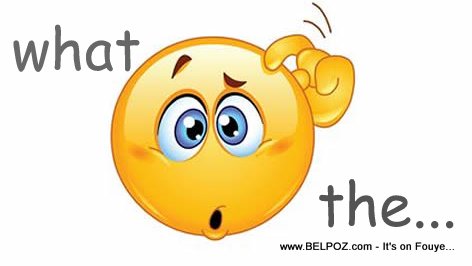 I’m one of a small group of authors that meet regularly and we call ourselves the Sandy Scribblers (a nod to all the gorgeous beaches in our town.) Our meetings cover all aspects of the writing life, but often, I get to present my plot dilemmas when they leave me floundering, and it’s the whole issue of seeing the forest for the trees. One or another of my group immediately latches onto the very heart of where I went wrong. Then they all chime in with ideas on fixing it, or eliminating the out of place scene. Presenting my confused characters with a road map or sending in the Marines to rescue them. I’m one of a small group of authors that meet regularly and we call ourselves the Sandy Scribblers (a nod to all the gorgeous beaches in our town.) Our meetings cover all aspects of the writing life, but often, I get to present my plot dilemmas when they leave me floundering, and it’s the whole issue of seeing the forest for the trees. One or another of my group immediately latches onto the very heart of where I went wrong. Then they all chime in with ideas on fixing it, or eliminating the out of place scene. Presenting my confused characters with a road map or sending in the Marines to rescue them.
XX
 Another huge and glaring proof that I’ve got a plot problem is that dreaded “Sagging Middle” that all writers hate. This is likely the same for plotters, as well. We started out with a bang and ran 80 yards for a touchdown, rebuffed the opposing team’s efforts to catch up and had a sterling second quarter. Then abruptly things fall apart. A key player is sidelined with an injury, the defense is MIA and the quarterback has been sacked. Some authors excel at getting out of these tight spots – call them the Tom Bradys of the writing world. If you’ve ever seen that man play, you’ll know he can seem totally overwhelmed, the Another huge and glaring proof that I’ve got a plot problem is that dreaded “Sagging Middle” that all writers hate. This is likely the same for plotters, as well. We started out with a bang and ran 80 yards for a touchdown, rebuffed the opposing team’s efforts to catch up and had a sterling second quarter. Then abruptly things fall apart. A key player is sidelined with an injury, the defense is MIA and the quarterback has been sacked. Some authors excel at getting out of these tight spots – call them the Tom Bradys of the writing world. If you’ve ever seen that man play, you’ll know he can seem totally overwhelmed, the 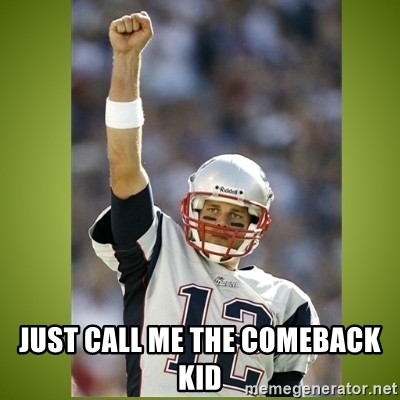 score heavily lopsided in his opponent’s favor, unable to connect with his best receivers, and is scrambling just to keep from losing the ball. Yet somehow, he comes back in the fourth quarter and pulls a rabbit out of a hat. score heavily lopsided in his opponent’s favor, unable to connect with his best receivers, and is scrambling just to keep from losing the ball. Yet somehow, he comes back in the fourth quarter and pulls a rabbit out of a hat.
XX
But Brady’s comeback didn’t happen by chance. There was some serious soul searching going on during that last break in the locker room that breathed new life into his team. This is what an author needs to do. Have a heart to heart with each of the major characters. Ask them how they feel about where they are, how they got there, what they plan to do about it. Maybe even threaten them to pull themselves together and get back on track.
XX
 My brother used to amuse our family with a completely unrehearsed discussion between a Scotsman and an Englishman, complete with accents that had us in stitches. His repartee hopped back and forth between the two and that verbal jousting was as realistic as if two entirely different people were having the discussion. This is often a tool a writer equally gifted might use all by themselves. But another way to get this pep talk under way is to bounce it around with a couple other writers. Every mind works differently so looking at your cul de sac with a trusted group of writers can produce remarkable breakthroughs. My brother used to amuse our family with a completely unrehearsed discussion between a Scotsman and an Englishman, complete with accents that had us in stitches. His repartee hopped back and forth between the two and that verbal jousting was as realistic as if two entirely different people were having the discussion. This is often a tool a writer equally gifted might use all by themselves. But another way to get this pep talk under way is to bounce it around with a couple other writers. Every mind works differently so looking at your cul de sac with a trusted group of writers can produce remarkable breakthroughs.
XX
The other major way we see or find plot problems is to engage beta readers once our first drafts are complete. This is a fresh set of eyes, or two or three sets of fresh eyes, reading, not to find all the copy edits and misspellings, but to get a sense of how the story flows. If there are potholes, your beta readers will drive right into them and immediately realize there is a problem.  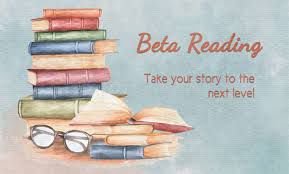 Sometimes it’s as simple as you knowing your character so well that you have her making choices and reacting to the events without actually considering why she is doing so. But the reader does not know the character as well as you do so they are suddenly left scratching their head wondering why. If they come back to you with a comment like, “I’ve no idea why Susan walked out like that.” Or “There’s just no way John would have done what you have him doing.” Clearly you’ve left some important information out, so you need to go back and add the emotions and thoughts of your characters that answer your beta readers’ questions. If your beta reader says that Jack had the patience of a saint in this confrontational scene, but his character up to that point wasn’t that of a patient person, you perhaps need to let the reader in on what was going through Jack’s head that kept him from reacting as the reader would have expected him to act. Sometimes it’s as simple as you knowing your character so well that you have her making choices and reacting to the events without actually considering why she is doing so. But the reader does not know the character as well as you do so they are suddenly left scratching their head wondering why. If they come back to you with a comment like, “I’ve no idea why Susan walked out like that.” Or “There’s just no way John would have done what you have him doing.” Clearly you’ve left some important information out, so you need to go back and add the emotions and thoughts of your characters that answer your beta readers’ questions. If your beta reader says that Jack had the patience of a saint in this confrontational scene, but his character up to that point wasn’t that of a patient person, you perhaps need to let the reader in on what was going through Jack’s head that kept him from reacting as the reader would have expected him to act.
XX
 Beta readers are not family and friends (although they can be if they approach the project objectively) Beta readers are not reading your book to give you glowing feedback and tell you it’s the best thing they’ve ever read etc. They are reading to tell you where they found problems: unexplained actions or reactions, unrealistic description, deviations from expected character behavior, outcomes that simply don’t make sense or resolutions that never happen. Sometimes, as I suggested before, overcoming these failures might just be a matter of information you skimped on, but other times it’s a huge black hole that needs to be illuminated, a pot hole in need of a road crew to fill it in or an entire plot line that needs reworking. Having good, honest Beta readers are not family and friends (although they can be if they approach the project objectively) Beta readers are not reading your book to give you glowing feedback and tell you it’s the best thing they’ve ever read etc. They are reading to tell you where they found problems: unexplained actions or reactions, unrealistic description, deviations from expected character behavior, outcomes that simply don’t make sense or resolutions that never happen. Sometimes, as I suggested before, overcoming these failures might just be a matter of information you skimped on, but other times it’s a huge black hole that needs to be illuminated, a pot hole in need of a road crew to fill it in or an entire plot line that needs reworking. Having good, honest  beta readers can be an author’s best friend. If you are traditionally published it’s often your content editor who will point all these things out, but for both traditionally and independently published writers, having a reliable beta reader is your best hedge against plot failures. Beta readers along with brainstorming partners are your best resource for fixing botched plot lines. beta readers can be an author’s best friend. If you are traditionally published it’s often your content editor who will point all these things out, but for both traditionally and independently published writers, having a reliable beta reader is your best hedge against plot failures. Beta readers along with brainstorming partners are your best resource for fixing botched plot lines.
XX
After all the fixing is done, send the book out again, perhaps to the same beta reader that gave you the feedback to see if they feel the problem has been fixed. You might also ask an entirely new beta reader who has not read this manuscript before. This is the best way to know if you’ve fixed all the problems, if your story makes sense and if the characters come across as real. Some authors I know also like to read their book out loud (to themselves.) That discipline of reading aloud can also reveal the places where there are problems.
XX
 So, now that you’ve seen how an author who writes by the seat of her pants finds and fixes plot problems, check out some of these other authors and learn how Plotters fix problems (although I suspect most of them find their problems before they begin the writing process because they’ve already plotted the story out and likely they save themselves a lot of time and grief.) So, now that you’ve seen how an author who writes by the seat of her pants finds and fixes plot problems, check out some of these other authors and learn how Plotters fix problems (although I suspect most of them find their problems before they begin the writing process because they’ve already plotted the story out and likely they save themselves a lot of time and grief.)
XX
Marci Baun
Connie Vines
Diane Bator
Beverley Bateman
Judith Copek
Dr. Bob Rich
Rhobin L Courtright
Saturday, May 22 2021
Our May Round Robin Blog Hop asks the question, Does writing change the author? Do you think your writing has changed you in any significant way?
XX
 Writing almost has to change the author for so many reasons. The most obvious would be when your first book, poem, short story or essay is published. That sense of achievement changes us. It gives us confidence to sit down and write the next one. When we enter our work in a contest and it places or wins it’s another shot in the arm that changes how we see ourselves and our work. But beyond that is how we change just from the writing itself. Writing almost has to change the author for so many reasons. The most obvious would be when your first book, poem, short story or essay is published. That sense of achievement changes us. It gives us confidence to sit down and write the next one. When we enter our work in a contest and it places or wins it’s another shot in the arm that changes how we see ourselves and our work. But beyond that is how we change just from the writing itself.
XX
 Many of our inspirations come the world around us. Things that happen not just to us, but to those we know, work with, live with and even just those we share a moment in line at the grocery store chatting with. And those events change us. Not just the events themselves, but the impact they have on us and others, and the reactions and attitudes of those affected. And some of those changes become a part of who we are, therefore they seep into our writing and change not just ourselves but our writing as well. As a glaring example, consider the events of 9/11. Events like the bombing of Pearl Harbor, or the assassination of President Kennedy and a terrorist attack in the heart of New York City rob us of a sense of security – it’s a shared and horrified loss of innocence. And it changes us. The reactions of those dealing with the results change us as well. Many of our inspirations come the world around us. Things that happen not just to us, but to those we know, work with, live with and even just those we share a moment in line at the grocery store chatting with. And those events change us. Not just the events themselves, but the impact they have on us and others, and the reactions and attitudes of those affected. And some of those changes become a part of who we are, therefore they seep into our writing and change not just ourselves but our writing as well. As a glaring example, consider the events of 9/11. Events like the bombing of Pearl Harbor, or the assassination of President Kennedy and a terrorist attack in the heart of New York City rob us of a sense of security – it’s a shared and horrified loss of innocence. And it changes us. The reactions of those dealing with the results change us as well.
XX
When we incorporate these shared events, both joyous or horrific into our stories, all authors end up doing some level of research to better understand all the aspects of the event in order to get our stories right, and to add authenticity. And that research broadens our personal understanding – so how can it NOT change us?
XX
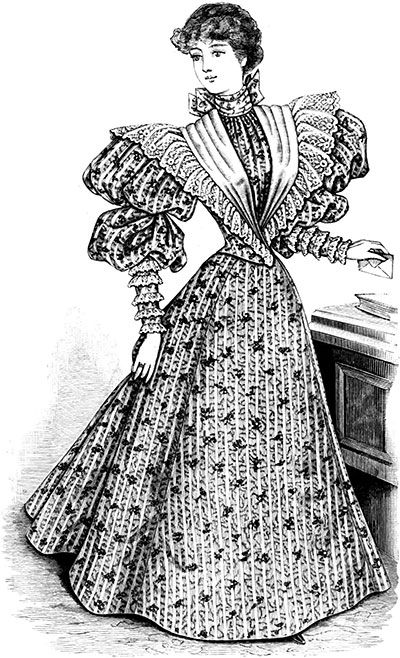 Speaking of research, for authors especially, the digging into details, historical or factual about places, times, events and places adds to our understanding of the world, and that again changes who we are and how we think about ourselves. If you need to incorporate a gun into your story but you’ve never shot one, or even held one, you have to do a little research and learning about firearms impacts your understanding of how they are used, or misused. You’re writing a historical set in Victorian times and you dig into women’s garments at the time so you can dress your characters properly. Speaking of research, for authors especially, the digging into details, historical or factual about places, times, events and places adds to our understanding of the world, and that again changes who we are and how we think about ourselves. If you need to incorporate a gun into your story but you’ve never shot one, or even held one, you have to do a little research and learning about firearms impacts your understanding of how they are used, or misused. You’re writing a historical set in Victorian times and you dig into women’s garments at the time so you can dress your characters properly.  And suddenly knowing how many pieces of clothing a woman had to don every day gives you a whole new appreciation of how good you’ve got it when you can slip into a pair of yoga pants and a T-shirt and call it done. So, no matter what detail you are looking into, it has to change your appreciation for what you already know. And suddenly knowing how many pieces of clothing a woman had to don every day gives you a whole new appreciation of how good you’ve got it when you can slip into a pair of yoga pants and a T-shirt and call it done. So, no matter what detail you are looking into, it has to change your appreciation for what you already know.
XX
Learning how others live, the mores and expectations of societies, both ancient, historical and current changes who we are as people. I spent two years in the Peace Corps in a very conservative Christian country. I was 56 when I left so my morals and expectations, what I was used to was very much a part of who I was as a mature adult and yet . . . . By the time I came home from Tonga, I felt a little shocked by the extreme lack of clothing when I saw a woman in a bikini. While I was there, a cruise ship came into our harbor and many of those aboard came ashore. I was told they were instructed to be modest in dress because Tongans are always modestly dressed, but when I saw some of these vacationers wandering down our streets even I was offended, in spite of whatever efforts they might have made. The first time I went shopping after returning home, I was totally overwhelmed with the variety and volume of options available. I’d forgotten what it was like to plop down to watch TV in the evening or toss my laundry into a machine instead of doing it by hand. And all this in just two years of living in another culture different from my own. As authors, when we write about places and times different from our own, we do our research and it might not change us as much as my two years in Tonga changed me, but it still effects how we look at people and places and it changes us.
 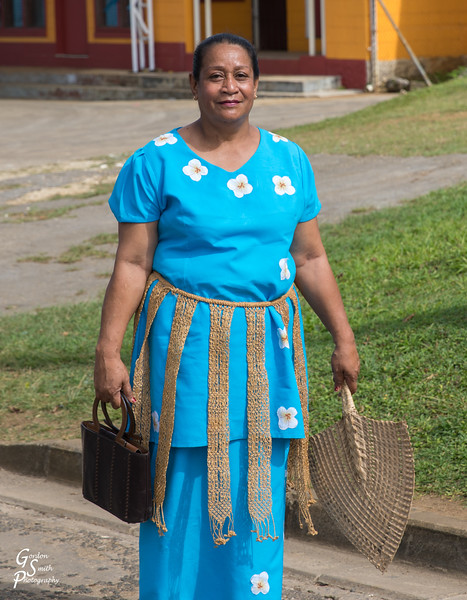  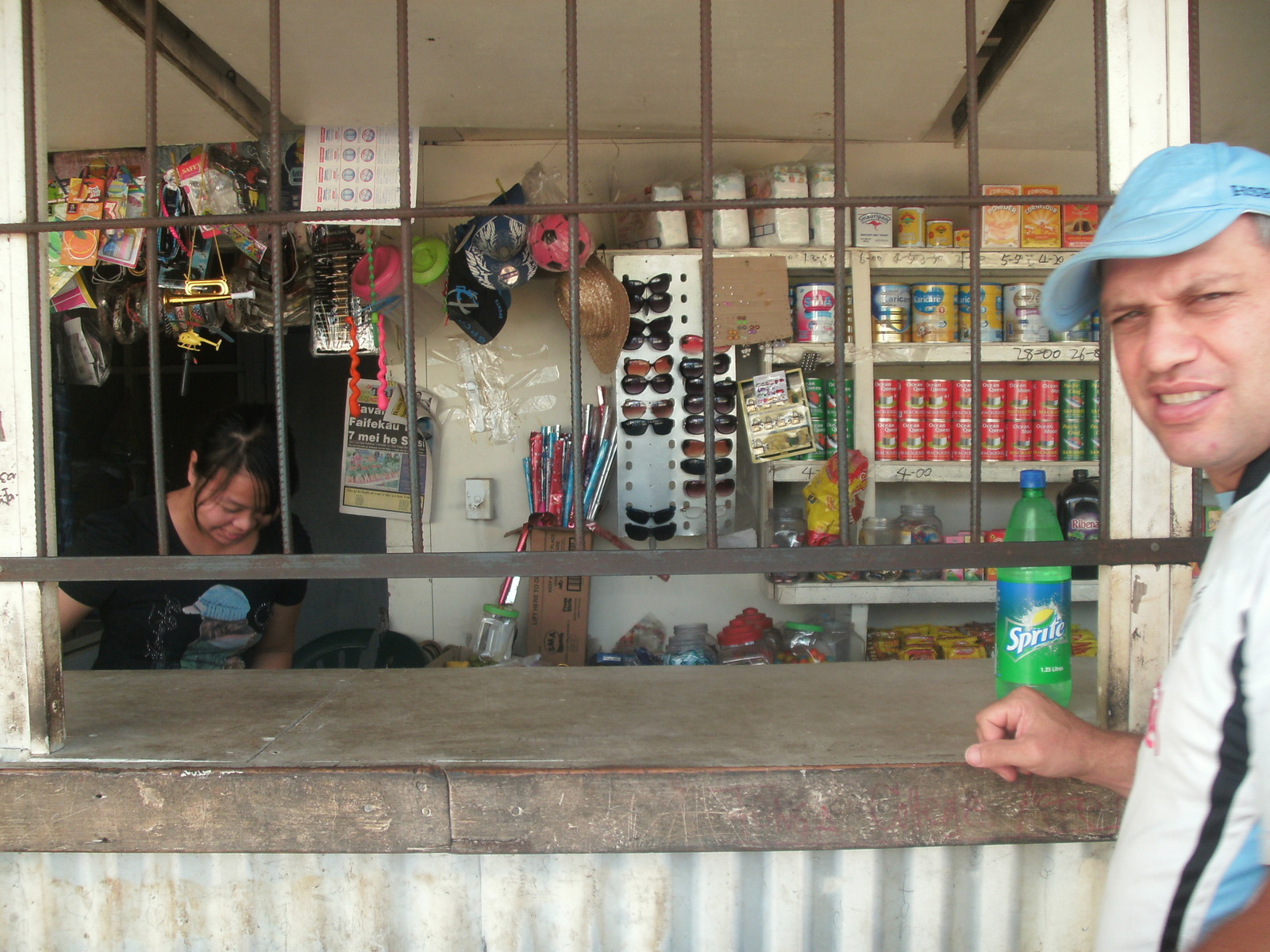
And that’s just the research part of our writing.
XX
 There is also the character arcs and story arcs we create. Most of us grow WITH our characters. Things our characters are learning are things we are learning while we write their stories. Years ago, when I was pretty young and thought I knew it all, a man far wiser than I said something that struck me as profound, and his words have stayed with me. I can almost hear his voice even all these years later saying, “The day we stop growing is the day we start dying.” Growing means change. Always. From the inches a child gains as they move from childhood into adulthood to the thoughts, emotions and maturity of our being for our entire life. There is also the character arcs and story arcs we create. Most of us grow WITH our characters. Things our characters are learning are things we are learning while we write their stories. Years ago, when I was pretty young and thought I knew it all, a man far wiser than I said something that struck me as profound, and his words have stayed with me. I can almost hear his voice even all these years later saying, “The day we stop growing is the day we start dying.” Growing means change. Always. From the inches a child gains as they move from childhood into adulthood to the thoughts, emotions and maturity of our being for our entire life.
XX
 I think one of the biggest things we gain as writers is empathy. If all our characters were just like us we might not learn much, but our books would be boring indeed. So, we branch out. We find out what it’s like to grow up with an alcoholic father, or live with prejudice, what it’s like to be a battered wife, or a geek – brilliant but different from our peers. Of course, we draw on what we know and incorporate much of that into our writing, but we also look around us and pay closer attention to what it might be like to be the mentally challenged bagger at the grocery store. We hear how one cop commits a horrific act and suddenly we have to consider what it must be like to be a good, dedicated I think one of the biggest things we gain as writers is empathy. If all our characters were just like us we might not learn much, but our books would be boring indeed. So, we branch out. We find out what it’s like to grow up with an alcoholic father, or live with prejudice, what it’s like to be a battered wife, or a geek – brilliant but different from our peers. Of course, we draw on what we know and incorporate much of that into our writing, but we also look around us and pay closer attention to what it might be like to be the mentally challenged bagger at the grocery store. We hear how one cop commits a horrific act and suddenly we have to consider what it must be like to be a good, dedicated 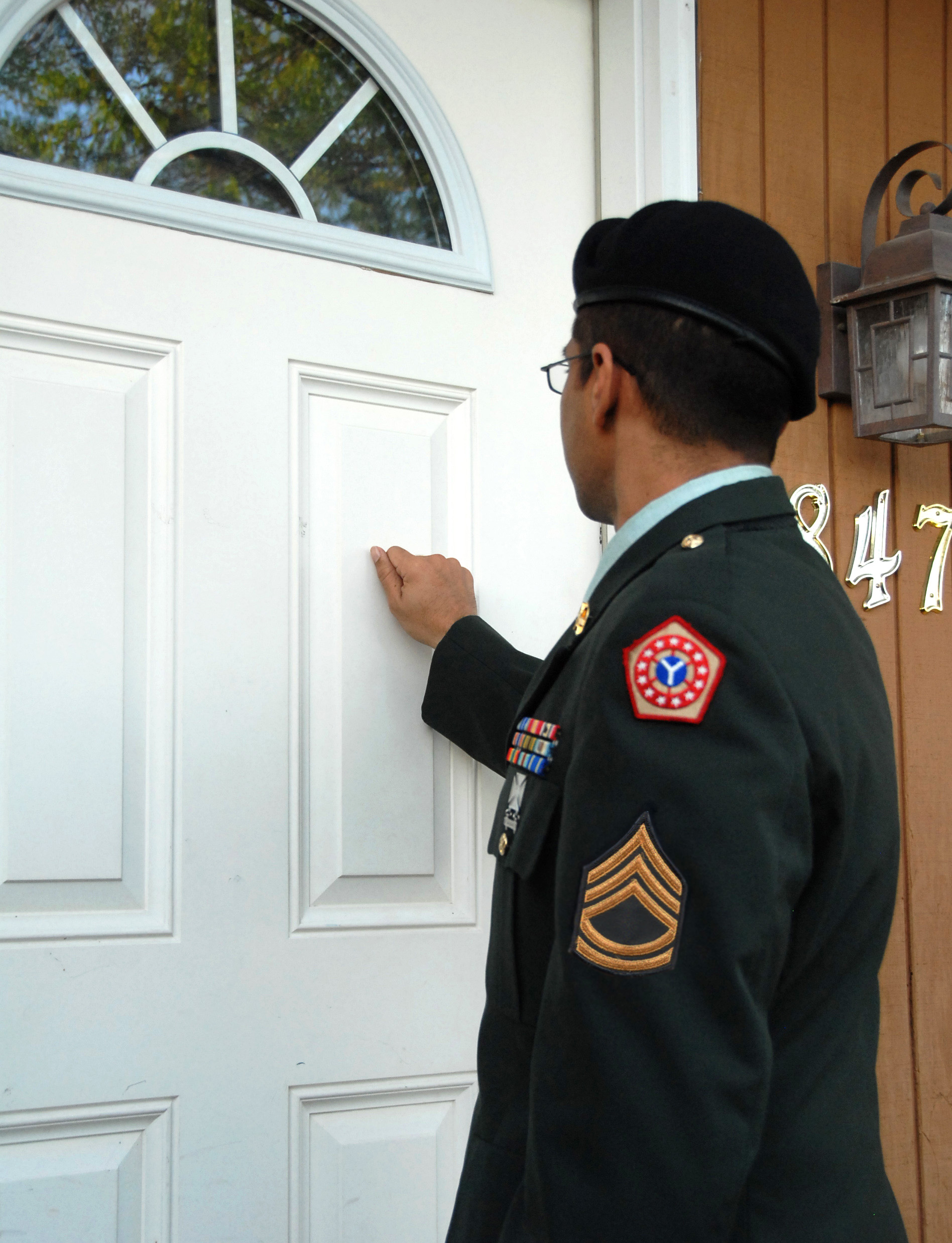 cop with a target on your back as soon as you put on your uniform. As difficult and painful as it is to have a doctor bring us bad news about ourselves or a loved one, what must it be like to be the bearer of that kind of news – over and over again? Or the ER nurse or doctor who fights with everything they have to save a life and then have to call it and admit defeat? Or even the mundane – what must it be like to be a hard-working, loyal employee who never gets the promotion or the atta-boy for a job well done? cop with a target on your back as soon as you put on your uniform. As difficult and painful as it is to have a doctor bring us bad news about ourselves or a loved one, what must it be like to be the bearer of that kind of news – over and over again? Or the ER nurse or doctor who fights with everything they have to save a life and then have to call it and admit defeat? Or even the mundane – what must it be like to be a hard-working, loyal employee who never gets the promotion or the atta-boy for a job well done?
XX
Writers do a lot of people watching. We see the strain on the faces of those who work in difficult jobs, or the soldiers, dressed in  their formal uniforms to tell a family member their loved one is never coming home again. We watch with appreciation the amazing patience of an airline clerk being screamed at by irate travelers over a delayed plane. We watch a harried mother coping with a tantrum in the middle of a grocery store, or a father consoling his son after he struck out with the bases loaded, and we learn a lot about people that way. People who handle things differently than we might. It changes us and our appreciation for others and the gifts they bring to the world. their formal uniforms to tell a family member their loved one is never coming home again. We watch with appreciation the amazing patience of an airline clerk being screamed at by irate travelers over a delayed plane. We watch a harried mother coping with a tantrum in the middle of a grocery store, or a father consoling his son after he struck out with the bases loaded, and we learn a lot about people that way. People who handle things differently than we might. It changes us and our appreciation for others and the gifts they bring to the world.
XX
 I’m not the sort of person who has ever spent a lot of time soul searching my strengths and weaknesses or laboring over my failings, but every now and then I see bits of myself in my characters. Usually less pleasant bits of myself and I’m shocked. OMG – That’s me! And that sudden realization has often forced me to change – to become someone I like a whole lot better. So, with my wise friend Harvey’s advice in my head, I have refused to start dying, which means I must continue to grow and my writing has been a part of that growing and changing. I pray God it will continue to be a part of me until the day I leave this earthly self for something even better. I’m not the sort of person who has ever spent a lot of time soul searching my strengths and weaknesses or laboring over my failings, but every now and then I see bits of myself in my characters. Usually less pleasant bits of myself and I’m shocked. OMG – That’s me! And that sudden realization has often forced me to change – to become someone I like a whole lot better. So, with my wise friend Harvey’s advice in my head, I have refused to start dying, which means I must continue to grow and my writing has been a part of that growing and changing. I pray God it will continue to be a part of me until the day I leave this earthly self for something even better.
XX
 Hop on over and see how these other authors view how writing has changed them: Hop on over and see how these other authors view how writing has changed them:
Anne Stenhouse
Marci Baun
Diane Bator
Connie Vines
Dr. Bob Rich
Fiona McGier
Judith Copek
Helena Fairfax
Beverley Bateman
Rhobin L Courtright
Saturday, April 17 2021
The topic for this month's Round Robin Blog Hop is: How do you choose your characters' names? Are there any you avoid?)
 Character naming is one of my favorite parts of creating a new story world and most of the time I spend a lot of thought on it, especially for my main characters. The choice of a name is part of creating the character itself because it needs to fit. It needs to sound pleasant and memorable and it needs to fit the era, time, place, social status, ethnicity and personality. Most of all, it needs to plant an indelible image of a character in your reader’s mind. One he cannot turn his back on. A character he can care about, cheer for and cry for, laugh with and triumph with. You only have one chance to make a first impression whether you’re going for a job interview, a blind date or creating a new character. Your character’s name is the first thing the reader knows about your character. Even before they open the book, your protagonist’s name is on the back cover and in the blurb. MAKE IT COUNT! Character naming is one of my favorite parts of creating a new story world and most of the time I spend a lot of thought on it, especially for my main characters. The choice of a name is part of creating the character itself because it needs to fit. It needs to sound pleasant and memorable and it needs to fit the era, time, place, social status, ethnicity and personality. Most of all, it needs to plant an indelible image of a character in your reader’s mind. One he cannot turn his back on. A character he can care about, cheer for and cry for, laugh with and triumph with. You only have one chance to make a first impression whether you’re going for a job interview, a blind date or creating a new character. Your character’s name is the first thing the reader knows about your character. Even before they open the book, your protagonist’s name is on the back cover and in the blurb. MAKE IT COUNT!
XX
I have a baby naming book on my shelf next to Sherrilyn Kenyon’s Character naming sourcebook that includes names listed by ethnic or heritage backgrounds, and another book listing all the surnames found in the US that tells me where those names originated. The books include meanings and historical use, pet or nicknames. There are online baby name lists and there is also a site listing 100 most popular names in any given year to get a historical perspective.
XX
 For my heroes and heroines, whose personal lives I’ll delve into beyond just the plot of the story, I’m careful to pick names that have nicknames that sound just as well with the surname as the given name does because sooner or later someone in your story will be using a nickname. Mom or dad might call their child Cameron or Margaret or Alexander for their offspring’s entire life, but siblings, schoolmates, co-workers, lovers and friends will find ways to shorten it. My oldest daughter was named Roberta after her dad’s childhood friend. She’s been Bobbi all her life. My second daughter, Rebecca was Becky growing up. So when daughter number three came along I named her Lori thinking that no one would ever shorten it. Hah! That joke was on me. Her gymnastics coach called her Lor. Thus, for my story characters, I am careful to choose a name that has a nickname that I like, that fits the character, the story and the era. For my heroes and heroines, whose personal lives I’ll delve into beyond just the plot of the story, I’m careful to pick names that have nicknames that sound just as well with the surname as the given name does because sooner or later someone in your story will be using a nickname. Mom or dad might call their child Cameron or Margaret or Alexander for their offspring’s entire life, but siblings, schoolmates, co-workers, lovers and friends will find ways to shorten it. My oldest daughter was named Roberta after her dad’s childhood friend. She’s been Bobbi all her life. My second daughter, Rebecca was Becky growing up. So when daughter number three came along I named her Lori thinking that no one would ever shorten it. Hah! That joke was on me. Her gymnastics coach called her Lor. Thus, for my story characters, I am careful to choose a name that has a nickname that I like, that fits the character, the story and the era.
XX
 I also pay attention to ethnicity. It’s not that a blue-eyed, blond can’t be named Jahzara or Diego, but the reader will unconsciously see something very different when they say the name in their mind, just as Sven or Fiona would be unlikely to have dark swarthy features. Unless this confusion is what you are aiming for. The same goes for sex. You can name a girl Stevie, but make sure that masculine nickname fits the personality you are going to endow her with. In my mystery series, my heroine is named Jessalyn Quinn. Her dad called her Jessie-girl, but mom and her uptight ex-husband always call her by her full name so when she decided to become a cop, pursuing a (female deputy) career both mom and the ex disapproved, my heroine decided to call herself Jesse. It fits the personality I have given her, the I also pay attention to ethnicity. It’s not that a blue-eyed, blond can’t be named Jahzara or Diego, but the reader will unconsciously see something very different when they say the name in their mind, just as Sven or Fiona would be unlikely to have dark swarthy features. Unless this confusion is what you are aiming for. The same goes for sex. You can name a girl Stevie, but make sure that masculine nickname fits the personality you are going to endow her with. In my mystery series, my heroine is named Jessalyn Quinn. Her dad called her Jessie-girl, but mom and her uptight ex-husband always call her by her full name so when she decided to become a cop, pursuing a (female deputy) career both mom and the ex disapproved, my heroine decided to call herself Jesse. It fits the personality I have given her, the 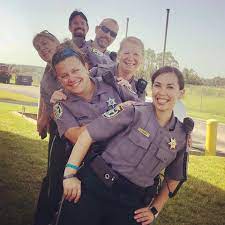 determination she displays to become her own person post-divorce and the reputation she gained for herself early on in the world of law enforcement. She’s a sexy, diminutive red-head who managed to subdue three far larger thieves in a convenience store hold-up when she was barely off probation, so when a new deputy meets her for the first time, his reaction is a double take followed by the comment, “You’re that Jesse Quinn?” My original choice was Jack, but then I realized there were three female law enforcement characters named Jack on popular TV series, so instead she became Jessalyn and Jesse instead of Jacqueline and Jack. Her red hair and feisty personality goes well with the Irish heritage suggested by Quinn. determination she displays to become her own person post-divorce and the reputation she gained for herself early on in the world of law enforcement. She’s a sexy, diminutive red-head who managed to subdue three far larger thieves in a convenience store hold-up when she was barely off probation, so when a new deputy meets her for the first time, his reaction is a double take followed by the comment, “You’re that Jesse Quinn?” My original choice was Jack, but then I realized there were three female law enforcement characters named Jack on popular TV series, so instead she became Jessalyn and Jesse instead of Jacqueline and Jack. Her red hair and feisty personality goes well with the Irish heritage suggested by Quinn.
XX
Another consideration is what era or time have you set your story. Is it in the past when many of the names we are familiar with today were either unheard of or uncommon. In Gone with the Wind Ashley is a man. During that same time period Evelyn was also a masculine name so you wouldn’t want to name a female character Ashley or Evelyn in the 1800s, just as you wouldn’t choose Milika or Tayshaun in Regency England high society, or even in the black communities of the American south during that same time period. If your story is set in the US during the last 100 years, you can google most popular names in Social Security records to find what was and was not common at the time. Google has become a great resource for finding appropriate names for any ancestry or ethnicity in any era, country, or social status.
XX
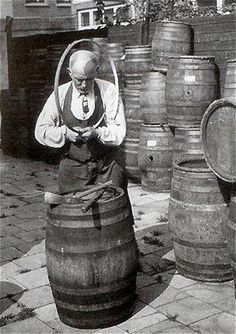 Another note on historical names is the meaning of some/many surnames. Today you hear about a man named Cooper and you might think actor or soldier, but in ages past Cooper meant someone who makes barrels. Smith, Taylor, Wainright (Wagon maker) and dozens of others began to be used when surnames first became a thing. Don’t forget there was a time when surnames were not used at all. And in some societies, the surname was simply your father’s or mother’s name added to your own, as in Elias John, who was Elias the son of John. Some surnames were place names: Hill, Ford, Rivers etc, or descriptive like Cameron which means hooked nose in Another note on historical names is the meaning of some/many surnames. Today you hear about a man named Cooper and you might think actor or soldier, but in ages past Cooper meant someone who makes barrels. Smith, Taylor, Wainright (Wagon maker) and dozens of others began to be used when surnames first became a thing. Don’t forget there was a time when surnames were not used at all. And in some societies, the surname was simply your father’s or mother’s name added to your own, as in Elias John, who was Elias the son of John. Some surnames were place names: Hill, Ford, Rivers etc, or descriptive like Cameron which means hooked nose in 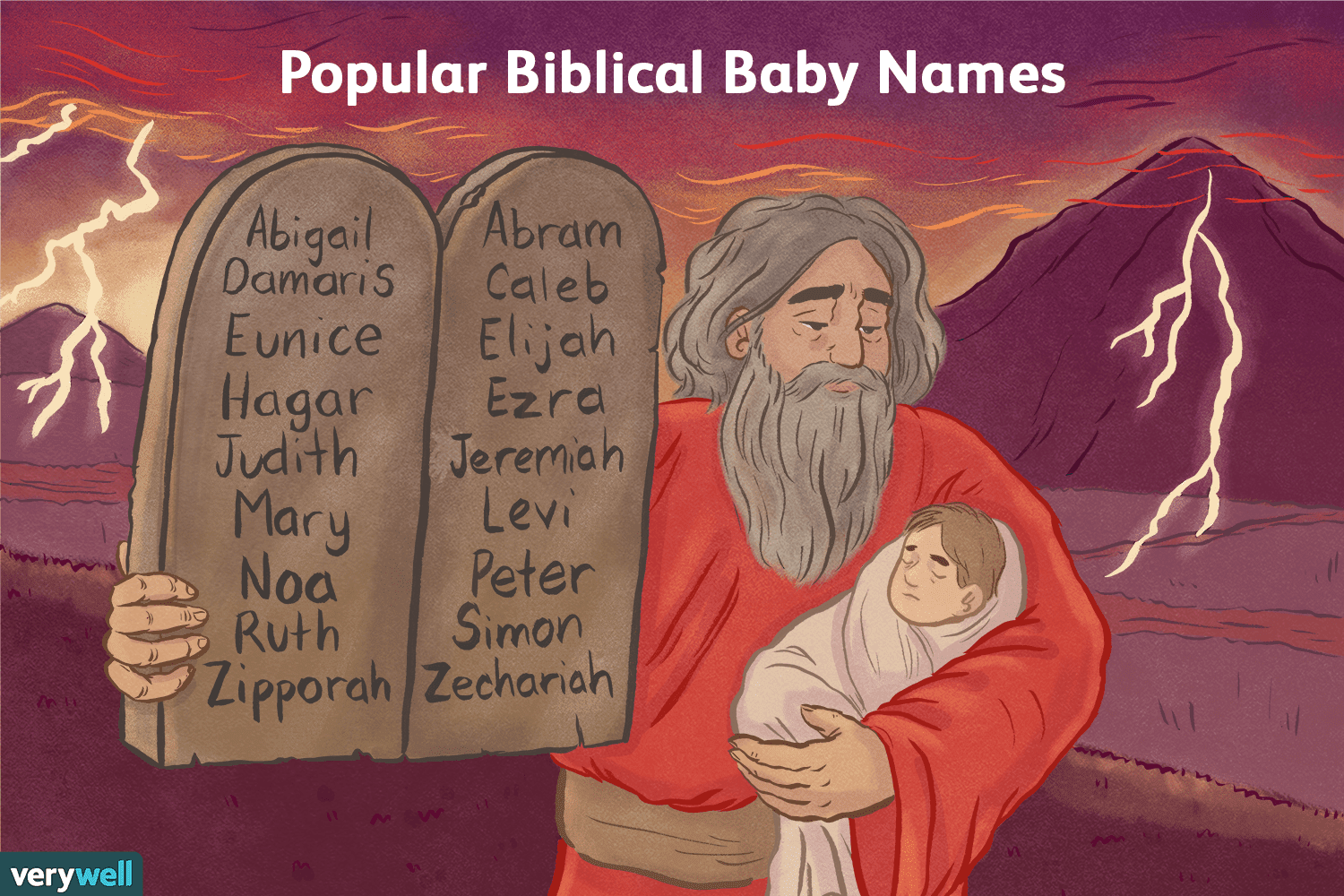 Scotland. Many names have meanings that we more or less ignore today, like Alexander which means protector, or Gabrielle – God’s Servant. And then there is always the Bible from which a huge portion of the names we hear every day originated either in their current form or an earlier spelling. Another thing to consider in historical settings would be social standing. Billy Bob would not be a Harvard professor and Montgomery equally unlikely for a dirt farmer in Iowa. Scotland. Many names have meanings that we more or less ignore today, like Alexander which means protector, or Gabrielle – God’s Servant. And then there is always the Bible from which a huge portion of the names we hear every day originated either in their current form or an earlier spelling. Another thing to consider in historical settings would be social standing. Billy Bob would not be a Harvard professor and Montgomery equally unlikely for a dirt farmer in Iowa.
XX
 There are general rules to at least keep in mind when naming your characters. I’ve heard it mentioned in several places not to use the same first letter too often as Keith, Kevin and Ken can confuse the reader. Even if you have two sisters, who happen to be twins, using Sheila and Sasha could become a brain game for the reader to recall which is which. Best-selling author Stuart Woods, for reasons I’ll never understand has a protagonist named Stone Barrington, which is fine, until he falls for a beautiful woman named Arrington Carrington. I hadn’t read far into that book before wanting to throw up. I have no idea why this seemed like a good choice for the woman’s name. There are general rules to at least keep in mind when naming your characters. I’ve heard it mentioned in several places not to use the same first letter too often as Keith, Kevin and Ken can confuse the reader. Even if you have two sisters, who happen to be twins, using Sheila and Sasha could become a brain game for the reader to recall which is which. Best-selling author Stuart Woods, for reasons I’ll never understand has a protagonist named Stone Barrington, which is fine, until he falls for a beautiful woman named Arrington Carrington. I hadn’t read far into that book before wanting to throw up. I have no idea why this seemed like a good choice for the woman’s name.
XX
Naming a character should include thinking about the impression you want this character to make. Claud Bumblefoot would not inspire nearly as much confidence as James Bond or Sherlock Holmes. If you want a softer side for a top cop, ace flyer, super spy or sleuth, avoid the single hard syllable first name. No loss in stature with names like William or Lawrence. You want a take-charge woman, consider Sidney, Dallas or Elizabeth. Pansy might teach kindergarten and Brandy mixes drinks in a bar.
  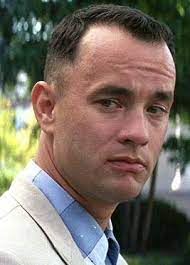 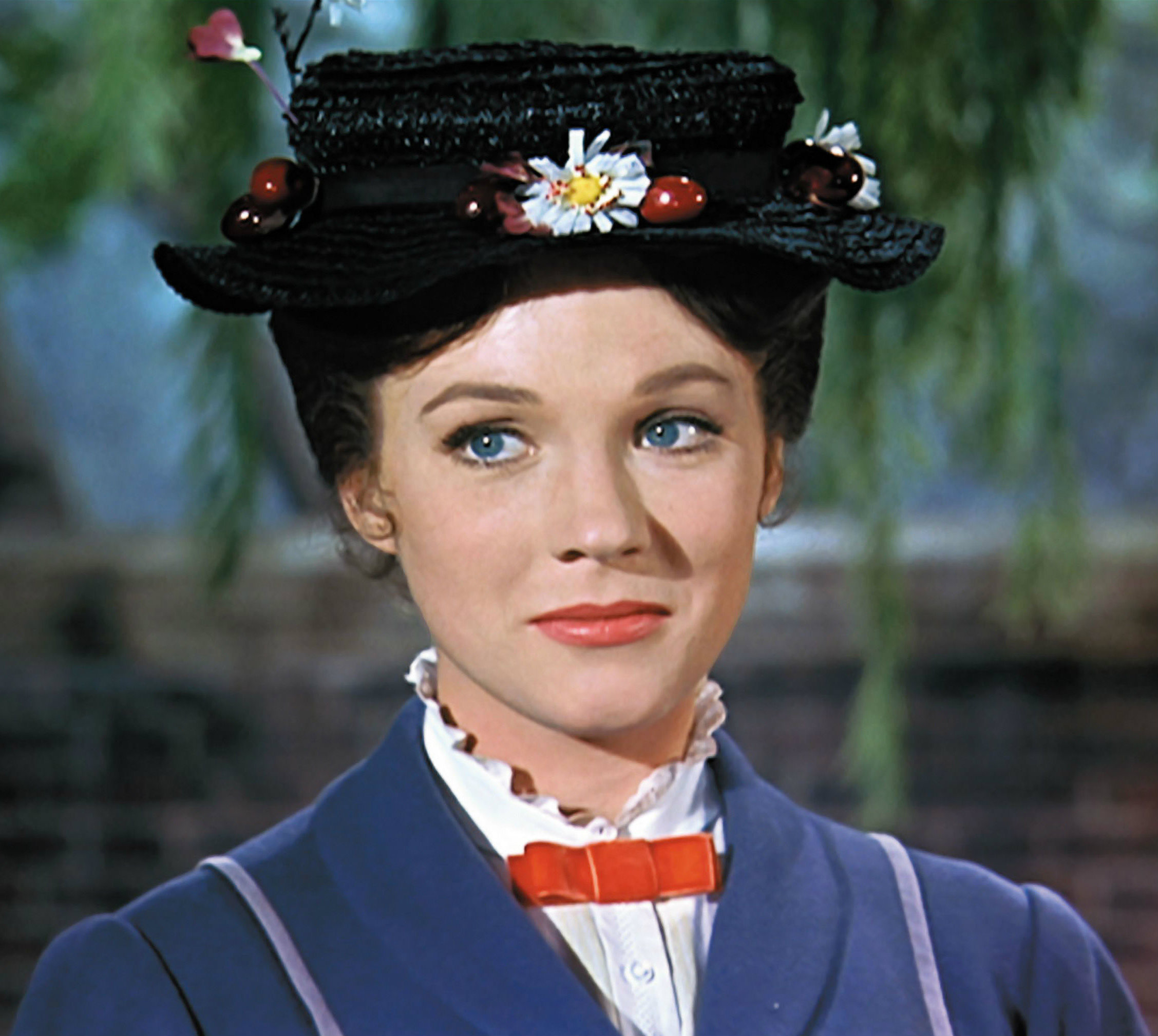
Think about the characters you’ve met over the years in books. What kind of impression does their name leave in your mind? Peter Pan, Jane Eyre, Heidi, Darth Vader, Rocky Balboa, Scarlet O’Hara, Forrest Gump, Charlie Brown, Mary Poppins, or Buffy Summers. Admittedly, the personality and achievements attributed to each are part of that impression, but what about when you first met them, before you got deeply into the story? Did the choice of name tip you off? Consider - Jack Reacher, no middle initial. Does that name suggest anything other than a no-nonsense man on a mission?
XX
To Summarize:
- Capture the personality
- Consider the heritage, ethnicity, social standing or era
- Make the first and last name flow off the tongue with ease
- Vary the names of your characters
- Keep the genre in mind
- Are you going to use nicknames and if so, make them fit the personality
- If your name breaks the rules, let the reader know the reason
XX
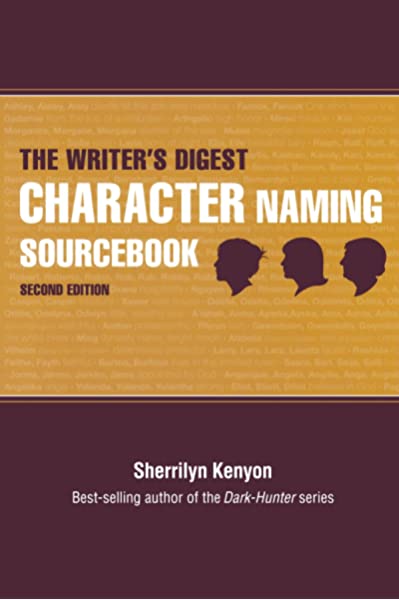 I confess, I spend far more time on picking out just the right names for my characters than many authors and have been known to change a name in the middle of writing when the name just doesn’t feel right as the character develops and grows. I also confess that there are a few characters that have popped onto the page, named themselves and proceeded show me how important they are to my story. Lucas Trevlyn in Keeping his Promise and Zoe in Falling for Zoe, among others, came into my head already christened and ready to join the action. I confess, I spend far more time on picking out just the right names for my characters than many authors and have been known to change a name in the middle of writing when the name just doesn’t feel right as the character develops and grows. I also confess that there are a few characters that have popped onto the page, named themselves and proceeded show me how important they are to my story. Lucas Trevlyn in Keeping his Promise and Zoe in Falling for Zoe, among others, came into my head already christened and ready to join the action.
XX
Among many books on the topic, the one I always recommend to new writers (and have loaned out many times) is The Writer’s Digest Character Naming Sourcebook by Sherrilyn Kenyon. But why not hop on over now and see how these other authors go about naming their characters.

Anne Stenhouse
Victoria Chatham
Beverley Bateman
Helena Fairfax
Dr. Bob Rich
Marci Baun
Judith Copek
Connie Vines
Fiona McGier
Rhobin L Courtright
Saturday, March 20 2021
 Welcome to the Round Robin Blog Hop for March 2021 - How do you develop tension in your writing? Welcome to the Round Robin Blog Hop for March 2021 - How do you develop tension in your writing?
XX
Although the Hallmark channel movies are immensely popular, how many of you have snored through one? I generally turn them on at Christmas time as company while I’m busy with holiday projects, but unless I have something else occupying my hands and head, my mind wanders from the movie far too easily. Why? Because of the lack of tension. Yes, they are romances and yes, there is some inner conflict – usually some past romantic break-up – but the rest of the story is all fluff. But if I switch over and watch, say, NCIS LA, the tension cranks up frequently, each time higher, to a crescendo at the climax and my brain, whatever I’m doing, is  yanked back to the action on the screen. yanked back to the action on the screen.
XX
This is called tension and if you want your readers to stay glued to your book, you need to follow the NCIS LA model rather than the Hallmark one. You want your readers to be forcing their eyelids to stay up late at night because they simply HAVE to know what’s going to happen next. Years ago, when I first got back to writing after my kids were grown and I had an empty nest, I joined a writers group and the speaker at the very first  meeting I attended was Tess Gerritson, best selling author of medical thrillers and creator of the Rizzoli and Isles series (in books and on tv.) One comment in her presentation struck me at the time and has stayed with me ever since. meeting I attended was Tess Gerritson, best selling author of medical thrillers and creator of the Rizzoli and Isles series (in books and on tv.) One comment in her presentation struck me at the time and has stayed with me ever since.
XX
“If things are going too well for your heroine, throw a new fence in her way.” She went on to elaborate, but I’m sure you get the picture. Your hero is about to win the race, so stick out your foot and trip him. That is one way to create tension, especially when things are beginning to sag.
XX
Right up front here I would like to recommend an excellent book written by Debra Dixon, author, editor and publisher  with the title. G.M.C. Goal Motivation & Conflict – the building blocks of good fiction. An excellent reference for all beginners and something that lives in any seasoned author’s soul. All your main characters and even some of your minor ones will have a goal, motivation and something that gets in the way of achieving it – the conflict, and that creates the tension. In Suspense and thrillers that conflict is right up front, looming large over the hero’s life and goals. In a romance, or in women’s fiction, it might be more subtle, but it’s there. Every good character needs something to strive for. They need a believable reason to want it. And something must stand in their way, challenging them to grow, and overcome. with the title. G.M.C. Goal Motivation & Conflict – the building blocks of good fiction. An excellent reference for all beginners and something that lives in any seasoned author’s soul. All your main characters and even some of your minor ones will have a goal, motivation and something that gets in the way of achieving it – the conflict, and that creates the tension. In Suspense and thrillers that conflict is right up front, looming large over the hero’s life and goals. In a romance, or in women’s fiction, it might be more subtle, but it’s there. Every good character needs something to strive for. They need a believable reason to want it. And something must stand in their way, challenging them to grow, and overcome.
XX
I began writing romance and that formula found in Ms. Dixon’s book works for both the hero and the heroine, preferably with both inner and outer conflicts in direct opposition to the other’s issues. For instance, the outer conflict might be that she’s a city girl and he’s a cowboy who can’t imagine living anywhere but on the wide open range. Or your heroine  is the owner of a small bookstore that’s been in the family for generations and the hero is the front man for a company trying to buy out all the business owners to put up some big modern condo complex. Your hero is desperate for a loan and your heroine is a responsible bank loan officer who sees him as a poor risk. In most fiction, but especially romance, there is an inner conflict as well. In romance, it’s something that makes falling in love with that particular person a bad idea. Sometimes it’s a history – he broke her heart in high school and she’s not about to give him a second chance. She’s a wall-flower and he’s a jock and it seems like they have nothing in common. Or maybe everyone she has ever loved in her life has met with an unfortunate end and she’s afraid to love anyone lest she doom them to a similar fate. Or his mother has been a liar and a cheat for as long as he can remember and he doesn’t trust women. That’s what creates tension in a romance. Two people, drawn to each other physically and mentally, but with some inner turmoil that keeps them from letting it just happen. is the owner of a small bookstore that’s been in the family for generations and the hero is the front man for a company trying to buy out all the business owners to put up some big modern condo complex. Your hero is desperate for a loan and your heroine is a responsible bank loan officer who sees him as a poor risk. In most fiction, but especially romance, there is an inner conflict as well. In romance, it’s something that makes falling in love with that particular person a bad idea. Sometimes it’s a history – he broke her heart in high school and she’s not about to give him a second chance. She’s a wall-flower and he’s a jock and it seems like they have nothing in common. Or maybe everyone she has ever loved in her life has met with an unfortunate end and she’s afraid to love anyone lest she doom them to a similar fate. Or his mother has been a liar and a cheat for as long as he can remember and he doesn’t trust women. That’s what creates tension in a romance. Two people, drawn to each other physically and mentally, but with some inner turmoil that keeps them from letting it just happen.
XX
 I’ve often been told my romances could be main stream or women’s fiction, though because I write what I see as real life. No one lives in a bubble where it’s just the hero and heroine and their relationship. We have kids and inconvenient relatives, co-workers, bosses, landlords, neighbors, dogs, cats, mortgages, cars that break down. The list is endless and I throw a lot of that conflict at my characters. In Falling for Zoe, my hero is coping with a mother with Alzheimer’s, a teen age daughter and 5 year old twins. The last thing he needs is another woman in his life. But that’s how love sometimes happens, in the midst of life however crazy it is. I’ve often been told my romances could be main stream or women’s fiction, though because I write what I see as real life. No one lives in a bubble where it’s just the hero and heroine and their relationship. We have kids and inconvenient relatives, co-workers, bosses, landlords, neighbors, dogs, cats, mortgages, cars that break down. The list is endless and I throw a lot of that conflict at my characters. In Falling for Zoe, my hero is coping with a mother with Alzheimer’s, a teen age daughter and 5 year old twins. The last thing he needs is another woman in his life. But that’s how love sometimes happens, in the midst of life however crazy it is.
XX
Iain’s Plaid, my time travel is a romance so it ran on inner and outer conflicts for my hero and heroine but added to that was the schism of time. She was thrust without warning into a time two hundred years earlier, which added a whole new layer of tension.
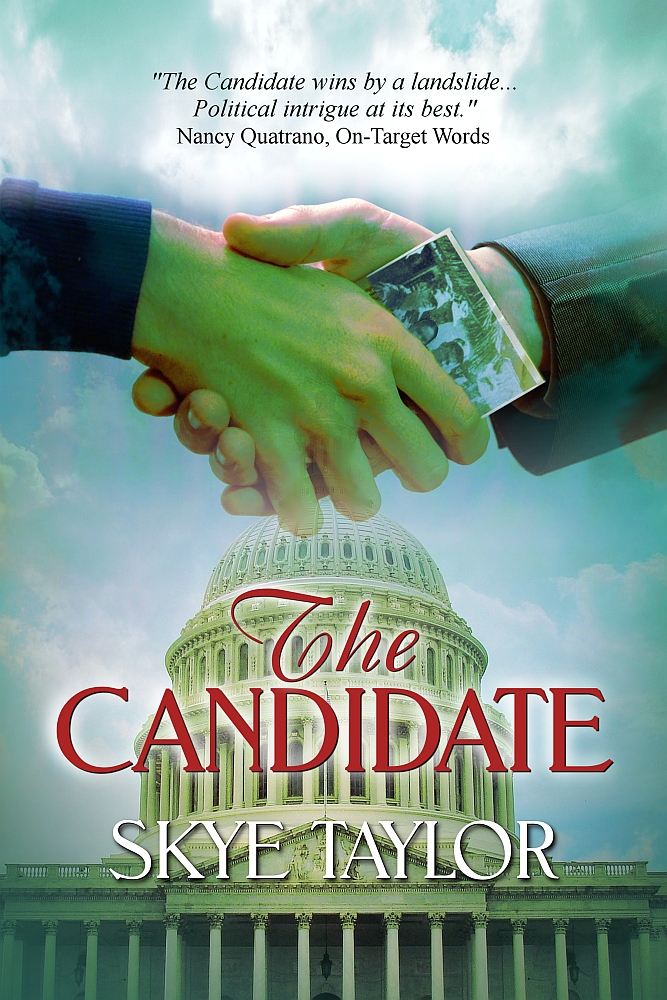 XX XX
The Candidate, one the first books I wrote, my hero is running for president against two other candidates. It’s a close race and any of the three have a shot at winning. The obvious and starkly different campaign promises and the lengths each man will go to win offers much of the tension, but the secrets each hides, that could be their undoing cranks that up. On the first page, my hero is presented with an unwanted reminder of a past he’s done everything to forget. He struggles with this unleashing of memory and pain while trying to keep his campaign on track. When I initially wrote that book, it was all his story, told from his point of view and it was mostly about his personal odyssey, and trying to stay focused on the campaign in the midst of that turmoil. But an editor who liked my premise suggested there was not enough tension. After considering my options, I broadened it by looking into all three campaigns, two from the candidates’ POVs and one from the campaign manager’s. Then I added POV opportunities for two other important characters whose very presence added trouble for my hero. Letting the reader see other points of view and what the hero is up against that he is not aware of added that tension my editor was looking for. The way you’d feel if you saw someone slip a rufie into a woman’s drink when she wasn’t looking and you want to shout “Don’t drink it!” but she can’t hear you as she picks up the glass and brings it to her lips.
XX
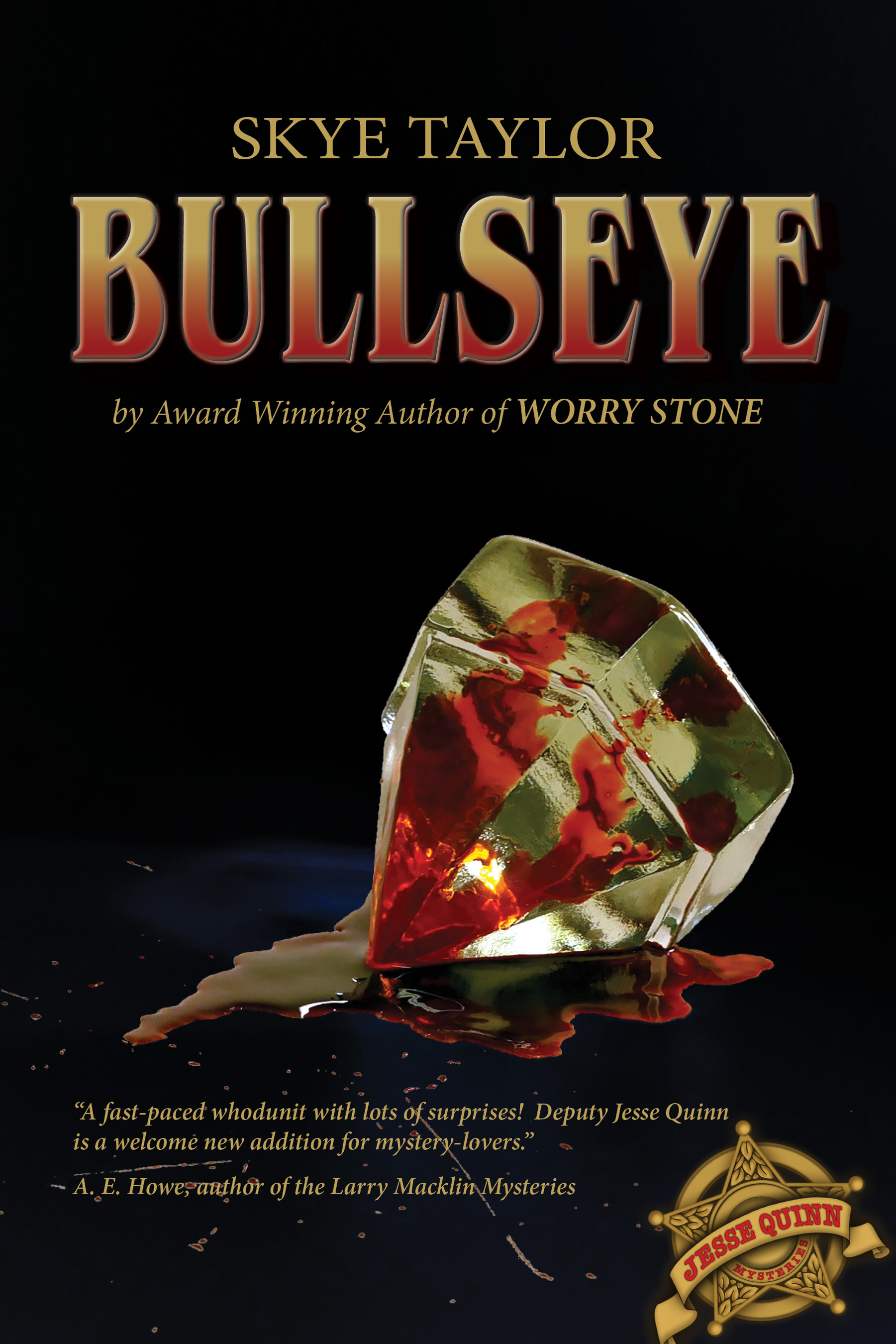 When I began writing mysteries I discovered a whole new challenge to keeping the tension going. I’m writing what they call police procedurals (as opposed to cozy mysteries or suspense) and in spite of what you see in movies and on TV, police work, like they say of soldiering, is 90% tedium and 10% terror. Police work also involves huge amounts of paperwork and reports. Some interviews of suspects can be tension filled, but more often they are just question after question, a detective’s effort to wear the suspect down until they spill something they meant to keep to themselves. None of which makes for interesting reading or adds much tension to the story. Another best-selling author, C. Hope Clark, made a comment when critiquing the first few chapters of my first mystery that I needed to have another dead body show up. When I began writing mysteries I discovered a whole new challenge to keeping the tension going. I’m writing what they call police procedurals (as opposed to cozy mysteries or suspense) and in spite of what you see in movies and on TV, police work, like they say of soldiering, is 90% tedium and 10% terror. Police work also involves huge amounts of paperwork and reports. Some interviews of suspects can be tension filled, but more often they are just question after question, a detective’s effort to wear the suspect down until they spill something they meant to keep to themselves. None of which makes for interesting reading or adds much tension to the story. Another best-selling author, C. Hope Clark, made a comment when critiquing the first few chapters of my first mystery that I needed to have another dead body show up.
XX
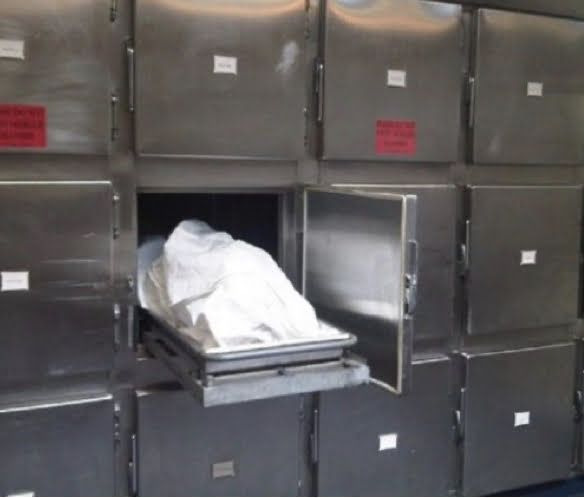 But it couldn’t be just any dead body. There had to be a connection and it had to complicate the ongoing investigation. One of my characters is convinced he knows who did it, and my heroine disagreed, but suddenly there is another body – one that is clearly connected, and yet the ME declares the time of death to coincide with the when their hot suspect has an air tight alibi. Now what? Are there two murderers working together? Was the first suspect innocent? Maybe the murders are not connected or perhaps they are a copy-cat? Whatever the cause, it had to disrupt the investigation’s momentum and create tension. But it couldn’t be just any dead body. There had to be a connection and it had to complicate the ongoing investigation. One of my characters is convinced he knows who did it, and my heroine disagreed, but suddenly there is another body – one that is clearly connected, and yet the ME declares the time of death to coincide with the when their hot suspect has an air tight alibi. Now what? Are there two murderers working together? Was the first suspect innocent? Maybe the murders are not connected or perhaps they are a copy-cat? Whatever the cause, it had to disrupt the investigation’s momentum and create tension.
XX
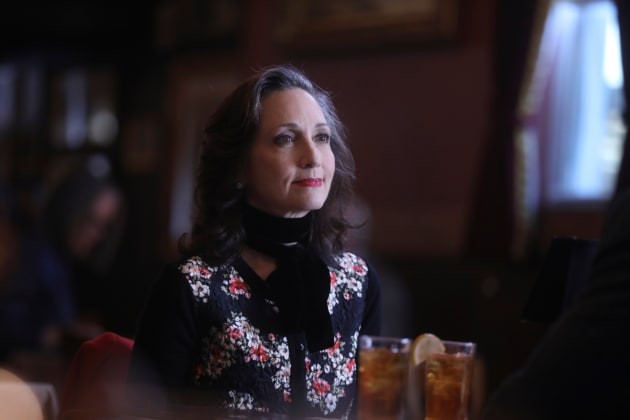 Another way to add tension to a murder mystery is to suddenly have your hero or heroine get too close to figuring things out and acquire a target on their back. Or there is a disagreement with someone in the department, especially a supervisor. Tension is often added by expanding the number of people on the case, bringing in the FBI for instance. If you watch Blue Bloods on TV you will have met the US Marshal who rides roughshod over anything either Danny Reagan or his father, the commissioner, are doing and tensions run high. Or the governor calls in State Police without consulting the NYPD. In one season the mayor appointed a woman to “oversee” the police department in what he called an effort for transparency. All of these conflicting power bases add tension. In another season a psychopathic serial killer got under Danny’s skin and taunted him, ending with a threat to his family. I can’t claim to be nearly as good as the writers for this show, but their example helps me to see places where I can add tension to my stories. Another way to add tension to a murder mystery is to suddenly have your hero or heroine get too close to figuring things out and acquire a target on their back. Or there is a disagreement with someone in the department, especially a supervisor. Tension is often added by expanding the number of people on the case, bringing in the FBI for instance. If you watch Blue Bloods on TV you will have met the US Marshal who rides roughshod over anything either Danny Reagan or his father, the commissioner, are doing and tensions run high. Or the governor calls in State Police without consulting the NYPD. In one season the mayor appointed a woman to “oversee” the police department in what he called an effort for transparency. All of these conflicting power bases add tension. In another season a psychopathic serial killer got under Danny’s skin and taunted him, ending with a threat to his family. I can’t claim to be nearly as good as the writers for this show, but their example helps me to see places where I can add tension to my stories.
XX
I’ve not written suspense or a thriller, medical mayhem or young adult, so perhaps you should check out some of these other authors and see how they create tension in those genres.
XX
Marci Baun
Dr. Bob Rich
Victoria Chatham
Connie Vines
Diane Bator
Rhobin L Courtright
Saturday, February 20 2021
 Round Robin Blog Hop Feb. 20 - Where do you get your ideas for stories? Round Robin Blog Hop Feb. 20 - Where do you get your ideas for stories?
This year is moving at the speed of light – February is almost over and I’m just getting used to writing 2021 on things and crossing off things I need to get accomplished before, hopefully, life gets back to something more like normal. But, back to the question above – where do I get my ideas?
XX
 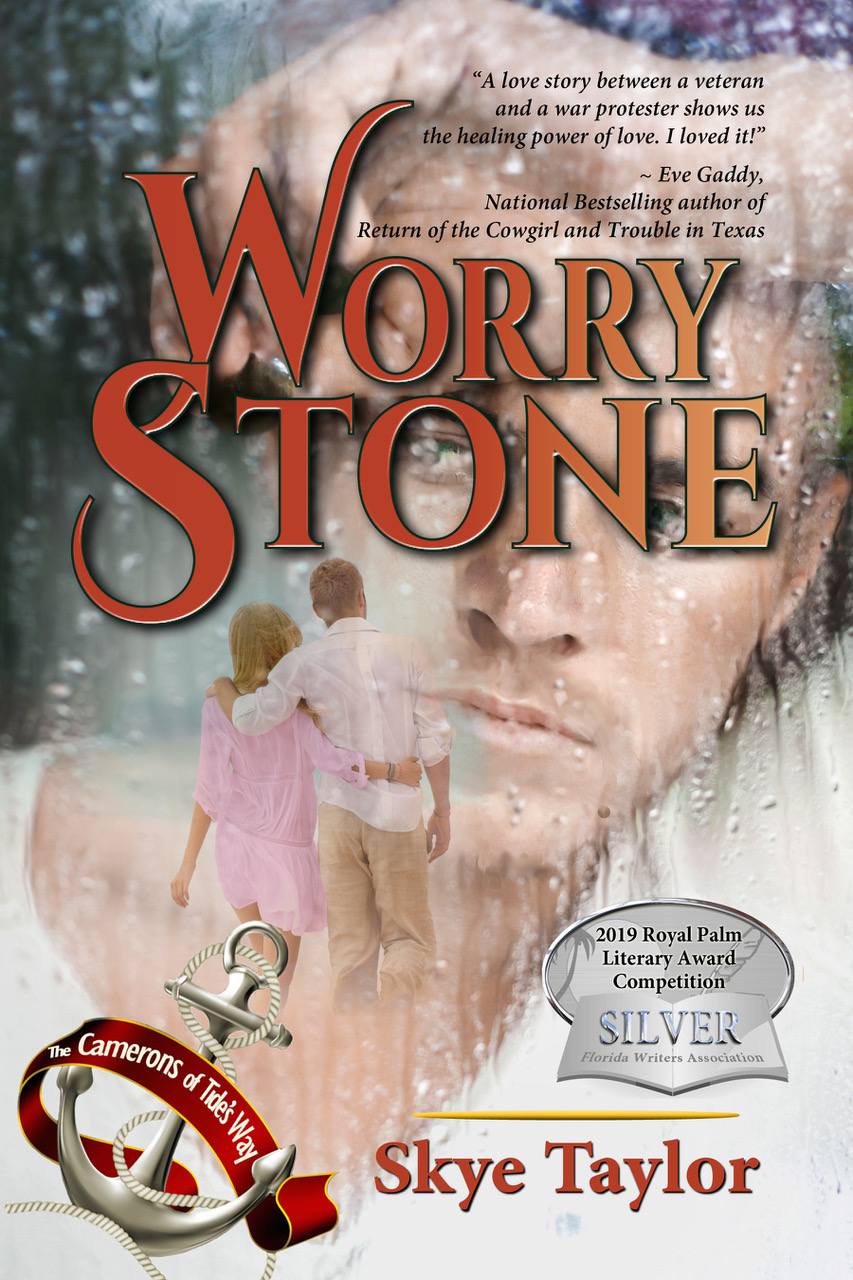 Two of my books, one a mainstream political intrigue and the other part of a romance series both have Vietnam Veterans as the main character: one coping with the return to civilian life amidst the chaos of a country divided over that war and the other revisiting emotions and grief he thought he’d left behind years ago. The second (The Candidate) came to me after I’d been to see the stage play Miss Saigon, the first (Worry Stone) after spending a night with my brother stretched out in front of a fire with more than enough beer in our systems while Scotty shared some of the anguish his experiences visited on him. Two of my books, one a mainstream political intrigue and the other part of a romance series both have Vietnam Veterans as the main character: one coping with the return to civilian life amidst the chaos of a country divided over that war and the other revisiting emotions and grief he thought he’d left behind years ago. The second (The Candidate) came to me after I’d been to see the stage play Miss Saigon, the first (Worry Stone) after spending a night with my brother stretched out in front of a fire with more than enough beer in our systems while Scotty shared some of the anguish his experiences visited on him.
XX
 My time travel story grew out of a sailing trip to explore a now abandoned island off the coast of Maine that has a history predating the arrival of the pilgrims in Massachusetts. Being something of a history nut, I wanted to see this scrap of land, and once out there, wondering about the men and women who once lived and worked there, I stood at the edge of a very large cellar hole gazing down at the sparkling blue water of the harbor. When the big chunk of granite wobbled, I jumped back, not wanting to fall and get hurt. But later, on the sail home, my writer’s brain kicked in and I asked myself the question, “What if I had fallen and hit my head, then woke in a different century?” And Iain’s Plaid was born. My time travel story grew out of a sailing trip to explore a now abandoned island off the coast of Maine that has a history predating the arrival of the pilgrims in Massachusetts. Being something of a history nut, I wanted to see this scrap of land, and once out there, wondering about the men and women who once lived and worked there, I stood at the edge of a very large cellar hole gazing down at the sparkling blue water of the harbor. When the big chunk of granite wobbled, I jumped back, not wanting to fall and get hurt. But later, on the sail home, my writer’s brain kicked in and I asked myself the question, “What if I had fallen and hit my head, then woke in a different century?” And Iain’s Plaid was born.
XX
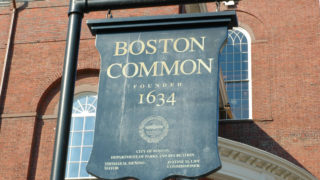 Because I enjoy reading about the less well known and often amusing bits of history, I’ve come away with other ideas for books I’ve written, like one revolving around a fire that destroyed a good part of the picturesque Maine coastal town of Camden. Growing up just outside of Boston Massachusetts and having wandered the streets, buildings and cemeteries from as far back as the 1600s, there are dozens of plot ideas I have jotted down notes for. I spent five days in Pennsylvania visiting towns with names like Intercourse and Paradise, both with history that dates back to the Revolutionary Because I enjoy reading about the less well known and often amusing bits of history, I’ve come away with other ideas for books I’ve written, like one revolving around a fire that destroyed a good part of the picturesque Maine coastal town of Camden. Growing up just outside of Boston Massachusetts and having wandered the streets, buildings and cemeteries from as far back as the 1600s, there are dozens of plot ideas I have jotted down notes for. I spent five days in Pennsylvania visiting towns with names like Intercourse and Paradise, both with history that dates back to the Revolutionary  War. I visited a living history museum that portrayed life the way it was in the 1800s and then spent the night in an old coach house (now operated by Best Western) that was a hostel on the road between Philadelphia and Harrisburg back when our country was still just a collection of British colonies. LOTs of great ideas for stories, either historic, time travel or even contemporary. War. I visited a living history museum that portrayed life the way it was in the 1800s and then spent the night in an old coach house (now operated by Best Western) that was a hostel on the road between Philadelphia and Harrisburg back when our country was still just a collection of British colonies. LOTs of great ideas for stories, either historic, time travel or even contemporary.
XX
 The book I’m currently writing is part of a mystery series, but an experience my sister had appears in the story as part of the plot. When my sister and I were cleaning out my dad’s old woodworking shop she discovered some “unexplained ordinance.” Being pretty sure it did not belong in the dumpster we’d been tossing stuff in, she put in the car and took it to the police station to ask how it should be disposed of properly. As you might imagine, the cops took this very seriously, wouldn’t let her return to her car even to collect her dog, panting in the back seat, until the bomb squad had checked it out. Annoying at the time, it was funny in the telling and I decided it needed to be part of one of my stories. The book I’m currently writing is part of a mystery series, but an experience my sister had appears in the story as part of the plot. When my sister and I were cleaning out my dad’s old woodworking shop she discovered some “unexplained ordinance.” Being pretty sure it did not belong in the dumpster we’d been tossing stuff in, she put in the car and took it to the police station to ask how it should be disposed of properly. As you might imagine, the cops took this very seriously, wouldn’t let her return to her car even to collect her dog, panting in the back seat, until the bomb squad had checked it out. Annoying at the time, it was funny in the telling and I decided it needed to be part of one of my stories.
XX
 Other stories I’ve written have come straight off the front page of the newspaper. Others involve real life incidents that I had to research after the fact. In Healing a Hero, I needed to have a reason why my hero and heroine would have lost touch after they fell in love while he was on compassionate leave fourteen years earlier. In a world of email and cell phones this was going to be a major challenge, but I’d subscribed to the Marine Times while writing this book because my hero was an active duty Marine currently recovering from injuries and I needed to know what kind of action he might be eager to get back into. And one issue of that paper had a story about a ship that was about to be decommissioned and two men who had served aboard her were interviewed. One was a sailor and the other a Marine. The ship had been in port in Perth Australia and these two men, like most of those who’d been given shore leave, were at a bar downtown when the MPs came rounding up all the sailors and Marines to return to the ship immediately. Such an unusual order had them wondering what was up. Then urgent discussions about the trade center in NY started circulating and the bartender reached up to turn on the TV over the bar just in time for the horrified Americans to watch the North Tower crumble into the ground. The ship they were from had been ordered back to sea and once on it, the orders were for NO COMMUNICATION. Their families would be notified about where they were and that they were okay, but there would be no phone calls, and no emails going out until further notice. My problem of how my hero and heroine had lost touch was answered and much of my plot revolved around that real-life experience. Other stories I’ve written have come straight off the front page of the newspaper. Others involve real life incidents that I had to research after the fact. In Healing a Hero, I needed to have a reason why my hero and heroine would have lost touch after they fell in love while he was on compassionate leave fourteen years earlier. In a world of email and cell phones this was going to be a major challenge, but I’d subscribed to the Marine Times while writing this book because my hero was an active duty Marine currently recovering from injuries and I needed to know what kind of action he might be eager to get back into. And one issue of that paper had a story about a ship that was about to be decommissioned and two men who had served aboard her were interviewed. One was a sailor and the other a Marine. The ship had been in port in Perth Australia and these two men, like most of those who’d been given shore leave, were at a bar downtown when the MPs came rounding up all the sailors and Marines to return to the ship immediately. Such an unusual order had them wondering what was up. Then urgent discussions about the trade center in NY started circulating and the bartender reached up to turn on the TV over the bar just in time for the horrified Americans to watch the North Tower crumble into the ground. The ship they were from had been ordered back to sea and once on it, the orders were for NO COMMUNICATION. Their families would be notified about where they were and that they were okay, but there would be no phone calls, and no emails going out until further notice. My problem of how my hero and heroine had lost touch was answered and much of my plot revolved around that real-life experience.
XX
 Some ideas come from events in my own life or the lives of family and friends. I’m still trying to figure out how to incorporate the night my sister and I broke into a hotel in Inverness Scotland into a story. (That’s a story for another blog.) But coping with widowhood and becoming a single parent is something I lived through and so it became part of Keeping His Promise. My mother had Alzheimers and I used that experience in the first book in that series, Falling for Zoe. Sometimes we have to go looking for ideas. My cover artist took one look at the photos I posted of my new puppy and started brainstorming ways I could incorporate the pup into my writing so she could create a cover with a dog on it. Or maybe you’re cleaning out your attic and you find a journal someone wrote. Maybe a family member, or perhaps a total stranger, but as you read their words: their thoughts and loves and lives, an idea comes to you for a story, or you realize, with a little twisting of facts you can take that very plot and turn it into fiction. Some ideas come from events in my own life or the lives of family and friends. I’m still trying to figure out how to incorporate the night my sister and I broke into a hotel in Inverness Scotland into a story. (That’s a story for another blog.) But coping with widowhood and becoming a single parent is something I lived through and so it became part of Keeping His Promise. My mother had Alzheimers and I used that experience in the first book in that series, Falling for Zoe. Sometimes we have to go looking for ideas. My cover artist took one look at the photos I posted of my new puppy and started brainstorming ways I could incorporate the pup into my writing so she could create a cover with a dog on it. Or maybe you’re cleaning out your attic and you find a journal someone wrote. Maybe a family member, or perhaps a total stranger, but as you read their words: their thoughts and loves and lives, an idea comes to you for a story, or you realize, with a little twisting of facts you can take that very plot and turn it into fiction.
XX
 I think most writers start out our stories with just a nugget of an idea. Maybe it was a dream we had, or a story we heard from a neighbor, or, as I’ve suggested, triggered by and event in the news, or even just a funny joke someone told. Maybe it was a photo you came across – the kind that makes you ask what’s going on, or ask questions about the expressions on the people’s faces. But it sticks in our mind and we worry it over like a dog with a bone, looking at it from every angle and considering all the what ifs. Rarely does a plot come to us all fleshed out and ready to write. So, like the mustard seed that starts out so tiny, we plant the idea and water it and eventually it grows into a magnificent tree – a story with characters and a plot and everything one needs to have a grand adventure between the covers of a book. I think most writers start out our stories with just a nugget of an idea. Maybe it was a dream we had, or a story we heard from a neighbor, or, as I’ve suggested, triggered by and event in the news, or even just a funny joke someone told. Maybe it was a photo you came across – the kind that makes you ask what’s going on, or ask questions about the expressions on the people’s faces. But it sticks in our mind and we worry it over like a dog with a bone, looking at it from every angle and considering all the what ifs. Rarely does a plot come to us all fleshed out and ready to write. So, like the mustard seed that starts out so tiny, we plant the idea and water it and eventually it grows into a magnificent tree – a story with characters and a plot and everything one needs to have a grand adventure between the covers of a book.
XX
So, now you know how I find my ideas – check out how these authors find plots for their books:
 Anne Stenhouse Anne Stenhouse
Beverley Bateman
Connie Vines
Diane Bator
Dr. Bob Rich
Fiona McGier
Helena Fairfax
Marci Baun
Victoria Chatham
Judith Copek
Rhobin L Courtright
Saturday, January 23 2021
Rhobin is putting us on the spot this month asking: What is on your writing to-do list for this year? Do you have any long-range goals or just wrap-ups?
XX
 Where to start? Considering it’s already the 23rd of the month and my goals for the year, prior to writing this blog were kind of vague wishes, it really was time to get serious. I used to make New Year’s resolutions for all aspects of my life and most of the time kept them, but the last few years I’ve slacked off. I don’t want to admit it might be my age, but if I’m honest, it probably is. I’ve been retired for ten years now and finally come to a point where I’m happy just to enjoy each moment of my day without feeling like I have to accomplish something. There’s always tomorrow, isn’t there? Of course, we all know that eventually my tomorrows will run out, but for now, life is pretty good. My personal life, anyway. We won’t get into the contentious politics and outright hostility in my country, or the devastating effects of Covid 19. I’m just thankful to be healthy, active and enjoying life, even if parts of it are via various online entities. Where to start? Considering it’s already the 23rd of the month and my goals for the year, prior to writing this blog were kind of vague wishes, it really was time to get serious. I used to make New Year’s resolutions for all aspects of my life and most of the time kept them, but the last few years I’ve slacked off. I don’t want to admit it might be my age, but if I’m honest, it probably is. I’ve been retired for ten years now and finally come to a point where I’m happy just to enjoy each moment of my day without feeling like I have to accomplish something. There’s always tomorrow, isn’t there? Of course, we all know that eventually my tomorrows will run out, but for now, life is pretty good. My personal life, anyway. We won’t get into the contentious politics and outright hostility in my country, or the devastating effects of Covid 19. I’m just thankful to be healthy, active and enjoying life, even if parts of it are via various online entities.
XX
 But back to my writing goals. Sort of related to my writing is my reading. As an author, I know how vital it is to have reviews for your books, so my first resolution is to read a book a week and write a review. So far, I’m up on that, having posted #3 and soon to post the 4th. But back to my writing goals. Sort of related to my writing is my reading. As an author, I know how vital it is to have reviews for your books, so my first resolution is to read a book a week and write a review. So far, I’m up on that, having posted #3 and soon to post the 4th.
XX
I got derailed last fall halfway through FRAMED, the second book of my new mystery series. First it was a problem 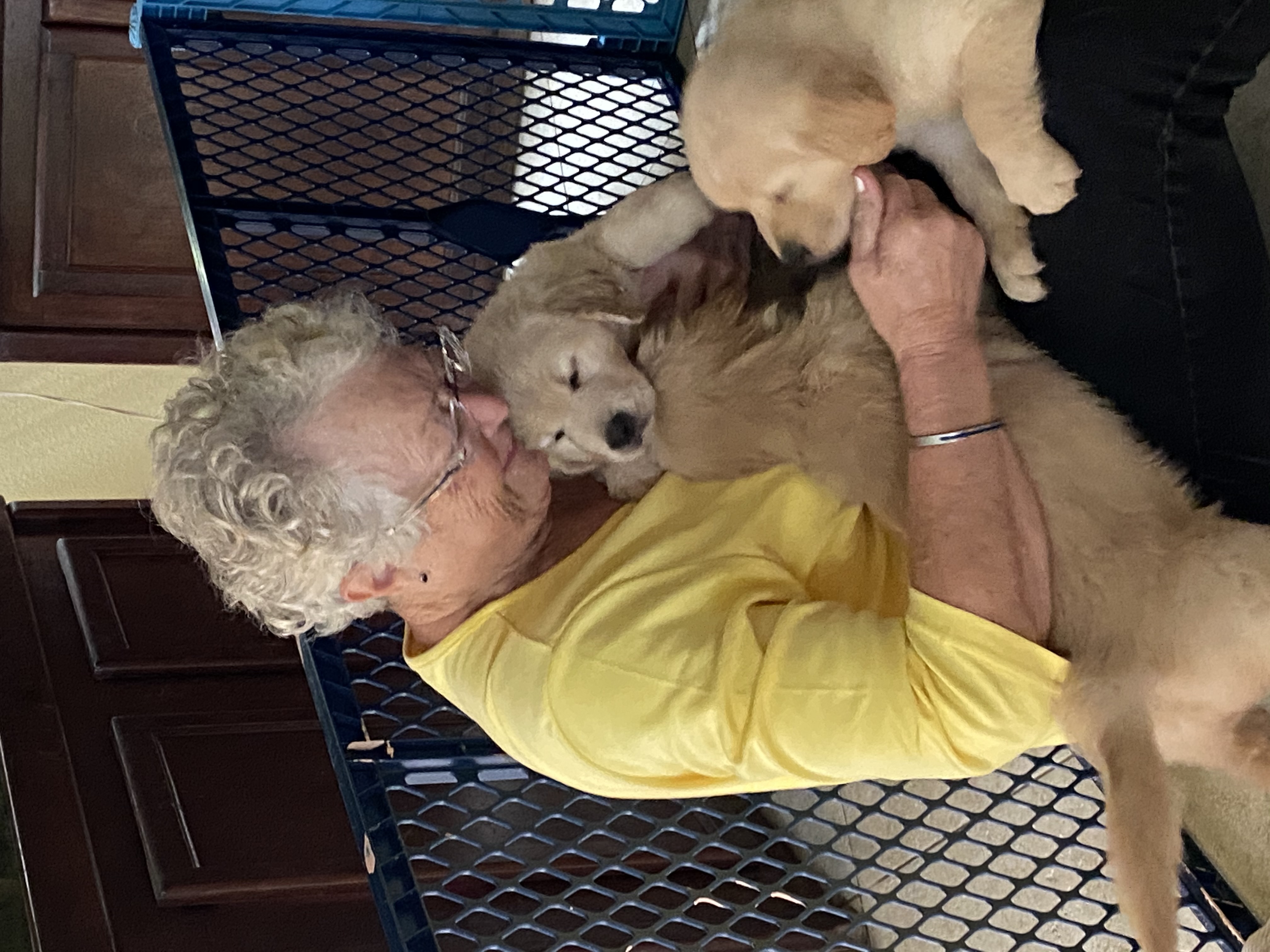 with plotting – I’m a pantser so plotting is a major challenge. Then it was the final days of my furry buddy’s life and his passing that left me feeling lost and aimless. I did a lot of walking and a lot of missing my dog. At first, I said I wasn’t going to have another pooch, it was too hard saying goodbye, but before long I realized this house and my life just felt way too empty. Duffy had been a great dog and his paws will be hard to fill, but I needed to try. So, the hunt was on at rescues and online. I finally ended up on a waiting list for a Golden Retriever puppy that was born on November 30. I will pick her up in two days and I’m eagerly anticipating her becoming part of my life, although I admit Jessi is going to be a serious distraction for a while. But in spite of housebreaking, training and playing with Jessi, I am determined to get FRAMED finished and off to the copy editor now that the holidays are past and I have no more excuses. I have faithful readers asking when my next book is coming out. with plotting – I’m a pantser so plotting is a major challenge. Then it was the final days of my furry buddy’s life and his passing that left me feeling lost and aimless. I did a lot of walking and a lot of missing my dog. At first, I said I wasn’t going to have another pooch, it was too hard saying goodbye, but before long I realized this house and my life just felt way too empty. Duffy had been a great dog and his paws will be hard to fill, but I needed to try. So, the hunt was on at rescues and online. I finally ended up on a waiting list for a Golden Retriever puppy that was born on November 30. I will pick her up in two days and I’m eagerly anticipating her becoming part of my life, although I admit Jessi is going to be a serious distraction for a while. But in spite of housebreaking, training and playing with Jessi, I am determined to get FRAMED finished and off to the copy editor now that the holidays are past and I have no more excuses. I have faithful readers asking when my next book is coming out.
XX
 I am also noodling on story ideas for another book in my Camerons of Tide’s Way series. Many of my readers have asked if I’m ever going to write another, but my original plan was for 6 books, and that’s how many I put out there. However, in KEEPING HIS PROMISE a secondary character walked on stage about two thirds of the way through the book. It was a character I suddenly realized I needed for the story and hadn’t created before the book began, but here he was, demanding my respect and a place in the story. At the time, I didn’t think too much about where he would go in the future, only what his place was in that book, but since then I’ve begun to wonder how he made out with his project. And, since the series itself is contemporary romance, I’m going to have to find him someone to fall in love with. So, that is another of my goals for the year. Once FRAMED is off to the editor, I’ll start working on Lucas Trevlyn’s story. I am also noodling on story ideas for another book in my Camerons of Tide’s Way series. Many of my readers have asked if I’m ever going to write another, but my original plan was for 6 books, and that’s how many I put out there. However, in KEEPING HIS PROMISE a secondary character walked on stage about two thirds of the way through the book. It was a character I suddenly realized I needed for the story and hadn’t created before the book began, but here he was, demanding my respect and a place in the story. At the time, I didn’t think too much about where he would go in the future, only what his place was in that book, but since then I’ve begun to wonder how he made out with his project. And, since the series itself is contemporary romance, I’m going to have to find him someone to fall in love with. So, that is another of my goals for the year. Once FRAMED is off to the editor, I’ll start working on Lucas Trevlyn’s story.
XX
 I am also entering a short story for the first time in the contest to be included in the annual Florida Writer’s Anthology. Every year, they put one out with 30 or so short stories, the best of all that have been submitted. There is a theme to the anthology and this year, that theme is Footprints. I’ve got my first draft of that and will be working on polishing and getting it submitted. I am also entering a short story for the first time in the contest to be included in the annual Florida Writer’s Anthology. Every year, they put one out with 30 or so short stories, the best of all that have been submitted. There is a theme to the anthology and this year, that theme is Footprints. I’ve got my first draft of that and will be working on polishing and getting it submitted.
xx
  Then comes the marketing stuff. I am horrible at marketing. I hate it and manage to procrastinate on all the stuff I do take on, and dismiss a lot of options I might do, but choose to ignore. This year, I want to try putting some of my indie books on sale via Amazon. I’m also going to look into Goodreads options. At the start of last year, I planned to walk into shops downtown here in St Augustine that carry books by local authors (both book stores and shops that cater to tourists.) But Covid happened and walking into any place was totally out of the question when BULLSEYE, my first book set right here in St Augustine came out in late February. I kind of thought by fall I might follow up on that, but the next wave of cases and tightening of precautions got in the way. So, now I’m planning to take FRAMED, as soon as it’s out along with BULLSEYE and see if I can make that happen. Hopefully the vaccinations will be well under way and life getting back to normal again on main street here and all across the country. Then comes the marketing stuff. I am horrible at marketing. I hate it and manage to procrastinate on all the stuff I do take on, and dismiss a lot of options I might do, but choose to ignore. This year, I want to try putting some of my indie books on sale via Amazon. I’m also going to look into Goodreads options. At the start of last year, I planned to walk into shops downtown here in St Augustine that carry books by local authors (both book stores and shops that cater to tourists.) But Covid happened and walking into any place was totally out of the question when BULLSEYE, my first book set right here in St Augustine came out in late February. I kind of thought by fall I might follow up on that, but the next wave of cases and tightening of precautions got in the way. So, now I’m planning to take FRAMED, as soon as it’s out along with BULLSEYE and see if I can make that happen. Hopefully the vaccinations will be well under way and life getting back to normal again on main street here and all across the country.
xx
 Lastly, I am going to make a better effort with my newsletters. Last year I totally slacked off after the announcement of BULLSEYE’s release. In the past, I’ve showcased other authors and their new releases as well as my own, had “interviews” with characters from my own books and others, as well as just touching base with my readers. Lastly, I am going to make a better effort with my newsletters. Last year I totally slacked off after the announcement of BULLSEYE’s release. In the past, I’ve showcased other authors and their new releases as well as my own, had “interviews” with characters from my own books and others, as well as just touching base with my readers.
xx
Those are my goals: two new books written and released, a short story I hope will make the cut in the FWA 2021 Anthology - Footprints, 52 book reviews and a more aggressive marketing effort, including a return to writing newsletters.
xx
Check out what the other authors in our Round Robin Blog Hop plan to do this year:
Victoria Chatham
Beverley Bateman
Connie Vines
Dr. Bob Rich
Anne Stenhouse
Diane Bator
Fiona McGier
Judith Copek
Rhobin L Courtright
Marci Baun
Friday, January 15 2021
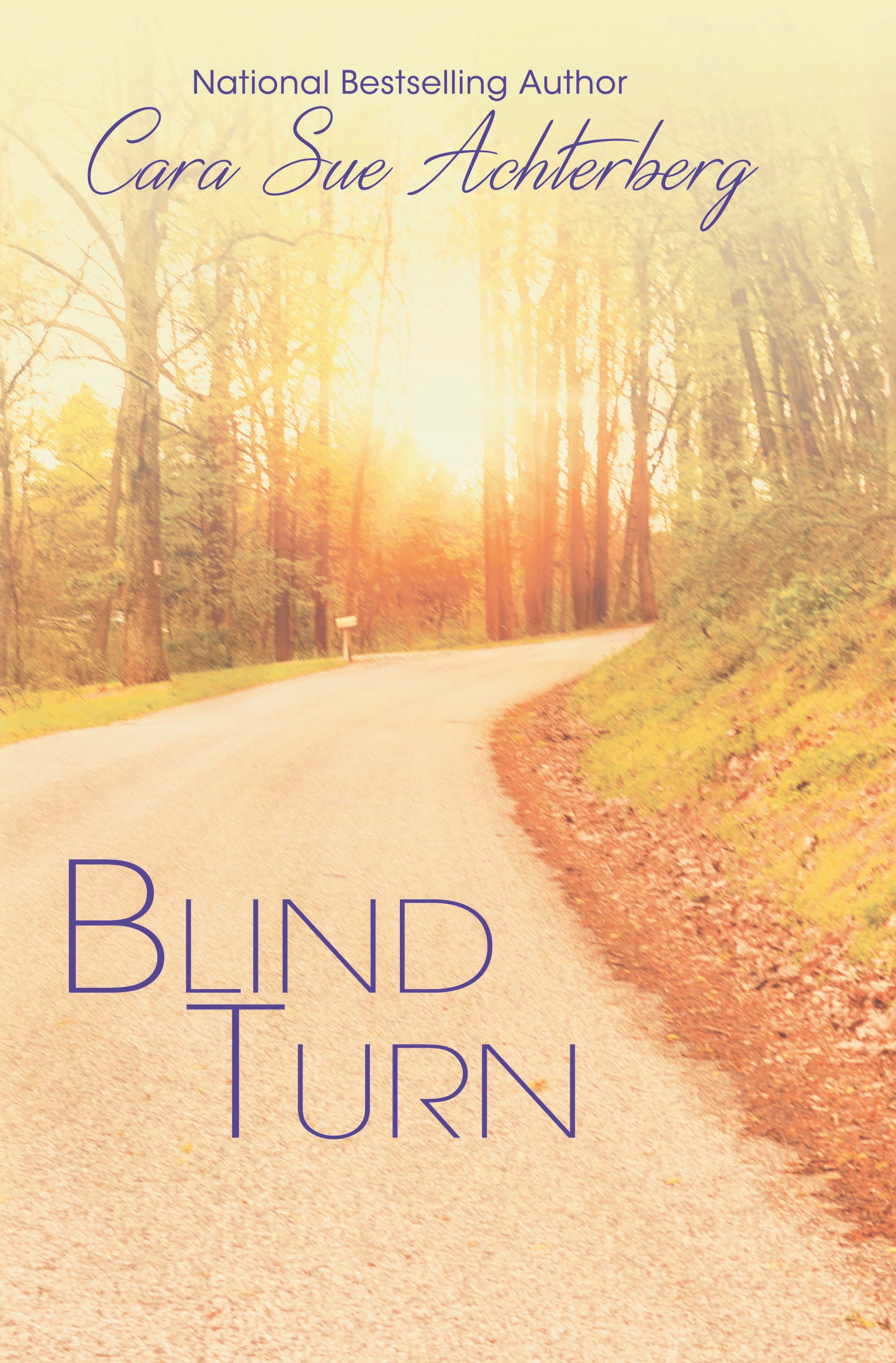 Just released ... Just released ...
Liz Johnson single-handedly raised an exemplary daughter—honor student, track star, and all-around good kid—despite the disapproval of her father and her small town. How could that same teenager be responsible for the death of the high school’s beloved football coach? This is Texas, where high school football ranks right up there with God, so while the legal battle wages, the public deals its own verdict.
Desperate for help, Liz turns to a lawyer whose affection she long ago rejected and attempts to play nice with her ex-husband, while her daughter struggles with guilt and her own demons as she faces the consequences of an accident she doesn’t remember.
Available everywhere - find Buy Links at: CaraWrites.com/blind-turn
Skye: Today I am pleased to welcome Liz Johnson, the main character in Blind Turn to Blogging By The Sea. Nothing better for getting to know a new character like meeting them in person. Liz, it's such fun to have you here today. I'm wondering what your life was like before Cara decided to plop you down in this book, Blind Turn.
Liz: My life was okay—not exciting, but okay. My only daughter, who I basically raised by myself since her father was too busy with his fishing boat, his hunting dogs, and a rotating cast of girlfriends, was just beginning her junior year of high school. Besides being an all around great kid, Jessica had excellent grades and was a stand out track star. Based on my income working as a nursing home day manager, we had high hopes for her to get a scholarship to a good school which would lead to a successful career and a great life, somewhere beyond this tiny Texas town where most of the time we feel like we live in a fishbowl. I was solely focused on Jess, and hadn’t begun to think about what my life would be like without her. Being her mother had defined my life.
Skye: I was a single mom for a good part of the years when my four kids were growing up. I know what you mean about they kind of define who you are and it really is hard to figure out who you are without them. What do you see as your strongest characteristic?
Liz: I’m determined—I set my mind to things and don’t let circumstances or people get in my way. When it came to Jess, I was willing to sacrifice my own happiness and dreams to be sure that she had a good life and a chance at something more.
Skye: So, before Jess, were there any secrets in your past that make you blush?
Liz: Doesn’t everyone have secrets? In our tiny town, it’s hard to hide them. My biggest secret became obvious to everyone when I got pregnant the spring of my senior year. Until that point, I was the smart kid headed to Baylor to study biology, but once my secret was out, my whole world changed.
Skye: I can only imagine. Becoming a mother is a life changing experience at any point in your life. But tell me, Do you ever argue with your author? Like maybe you didn't want to be an unwed mother.
Liz: I argued a little with my author, only because I wanted to share my side of the story. For a while, she planned to tell Jessica’s story and mine was only backstory, but eventually, she let me have my say.
Skye: As it should be. So, what is your biggest joy in life?
Liz: My daughter has always been not only my biggest joy in life, but the focus of my life. After the accident, finding joy in anything was much harder, but in the end I think I expanded not only my definition of joy, but my openness to it.
Skye: Is there anything about yourself you’d change if your author listened to you?
Liz: That’s a hard question—I don’t feel ashamed about anything in my life; I have no regrets. Sure I wish a few things had been different, but if they were it might have changed the outcome and I love my happy ending.
Skye: Tell me about a couple your fellow characters that you think make this book engaging.
Liz: Well, I already mentioned my daughter Jessica- the light of my life and also a typical teen struggling with who she is and who she wants to be. But there’s also a quirky kid next door named Dylan, who despite some questionable wardrobe choices and being several years younger than Jess, proves to be a real friend who helps her when she needs it most by being honest and available. I probably have to mention my ex-husband Jake who lives in a falling apart housetrailer with two smelly hound dogs and fixes cars for a living. Jake has never had any trouble finding fun, in fact, that’s probably what drew me to him but also what ended our ill-conceived marriage. There’s another guy I’d love to mention, but I don’t want to give too much away. Plus a high school guidance counselor, my sister in Minnesota, and the victim’s widow who shared their wit and/or wisdom at just the right moments,
Skye: Well, I'm looking forward to meeting these folks. I love quirky characters - they add such color to a story. And, as you say, support and love often comes from the least expected places. And now that your story is out there for folk to dive into, tell us a little something about your author. Where can readers find her website/blog?
Liz: Cara writes all sorts of things beyond novels—blogs, freelance articles, and two memoirs about her experiences fostering dogs. She also co-founded a non-profit called Who Will Let the Dogs Out to raise awareness and resources for shelter dogs. She has three of her own dogs, plus two horses, a barn cat, and a dozen chickens in addition to a rotating roster of foster dogs and cats. Readers can find information on all of that (and lots more) at her website: CaraWrites.com
Skye: Thanks so much for joining me today, Liz. It's been a real pleasure.
Readers - you might also want to check out Cara ßue Achterberg's book, One Hundred Dogs and Counting.  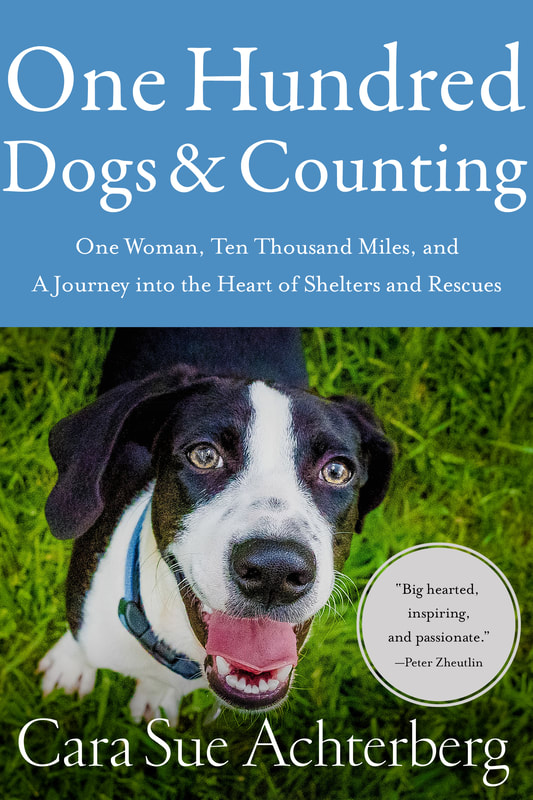
A challenging foster dog invites an experienced foster mama to explore where the endless stream of unwanted dogs is coming from and how it will ever end.
After welcoming her one hundredth foster dog (and her puppies), Cara grabs her best friend, fills a van with donations, and heads south to discover what is really happening in the rural shelters where her foster dogs originate. What she discovers will break her heart and compel her to share the story of heroes and villains and plenty of good dogs, in the hope of changing this world. Cara fosters her most challenging dog yet and she and her husband are pushed to the brink of what they will do to save a dog. Cara wonders why the need seems endless. She hatches a plan to head south on a Thelma & Louise-style road trip. Each stop exposes more of the realities of rural animal shelters. The hopelessness seems unsurmountable until they discover one shelter, deep in South Carolina that has found the answers and is truly a ‘no-kill’ shelter. One Hundred Dogs and Counting will introduce the reader to many good dogs, but also to inspirational people sacrificing personal lives and fortunes to save deserving animals. It will offer not just the entertaining stories of plenty of loveable good dogs, but the real problem of unwanted animals in our rural shelters, and how the reader can be part of the solution.
Saturday, December 19 2020
 Our December Round Robin Blog Hop assignment was: Write a short story, flash fiction, or use an excerpt from one of your books. I considered an excerpt. Or perhaps digging out one of my short stories not yet shared here. But then this came into my head - or maybe it was my heart. It started out to be fiction, but I'll be honest - it's really my life over the last two months since Duffy crossed the Rainbow Bridge to wherever beloved pets go. If you've ever had a pet, you'll understand. If not, I hope you enjoy the story anyway. And Happy Holidays to you all, however you will be celebrating. Our December Round Robin Blog Hop assignment was: Write a short story, flash fiction, or use an excerpt from one of your books. I considered an excerpt. Or perhaps digging out one of my short stories not yet shared here. But then this came into my head - or maybe it was my heart. It started out to be fiction, but I'll be honest - it's really my life over the last two months since Duffy crossed the Rainbow Bridge to wherever beloved pets go. If you've ever had a pet, you'll understand. If not, I hope you enjoy the story anyway. And Happy Holidays to you all, however you will be celebrating.
XX
The vet and I were both on our knees, my face buried in his silky fur as Duffy passed from this life to the next. The vet, her eyes damp, gathered up her things and prepared to leave us, giving me permission to stay with Duffy as long as I wanted. But my furry buddy was 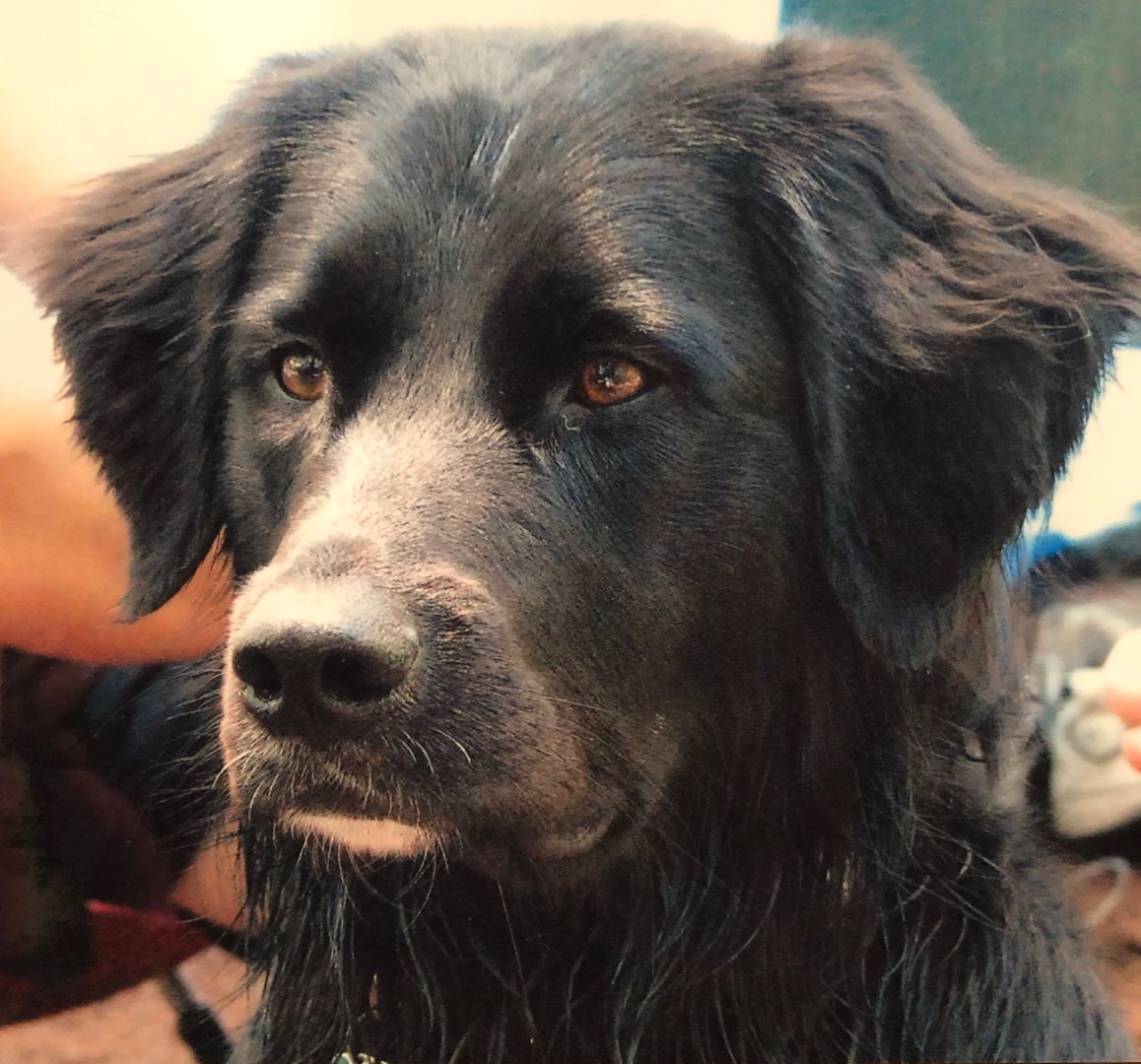 gone. Everything good about him was in my past. He could no longer lick away the tears that continued to slip down my cheeks. I hugged him one last time, then stumbled weeping from the room. gone. Everything good about him was in my past. He could no longer lick away the tears that continued to slip down my cheeks. I hugged him one last time, then stumbled weeping from the room.
I don’t know if there’s a rainbow bridge, or not, but I pray there is. For Duffy’s sake. I want to think of him romping and playing, not crippled with age and unable to get to his feet on his own, no longer able to walk to the beach for a swim, or gallop over the sand with joyous abandon.
Duffy was special. I know, everyone says that, but really, Duffy was extraordinary and the hole he was leaving in my life was enormous.
MacDuff been a rescue, born on the streets of New Orleans after Hurricane Katrina and picked up along with his mom and siblings. I’d adopted him from a photo online and agreed to meet the truck bringing him out of that chaotic place along with dozens of other dogs.
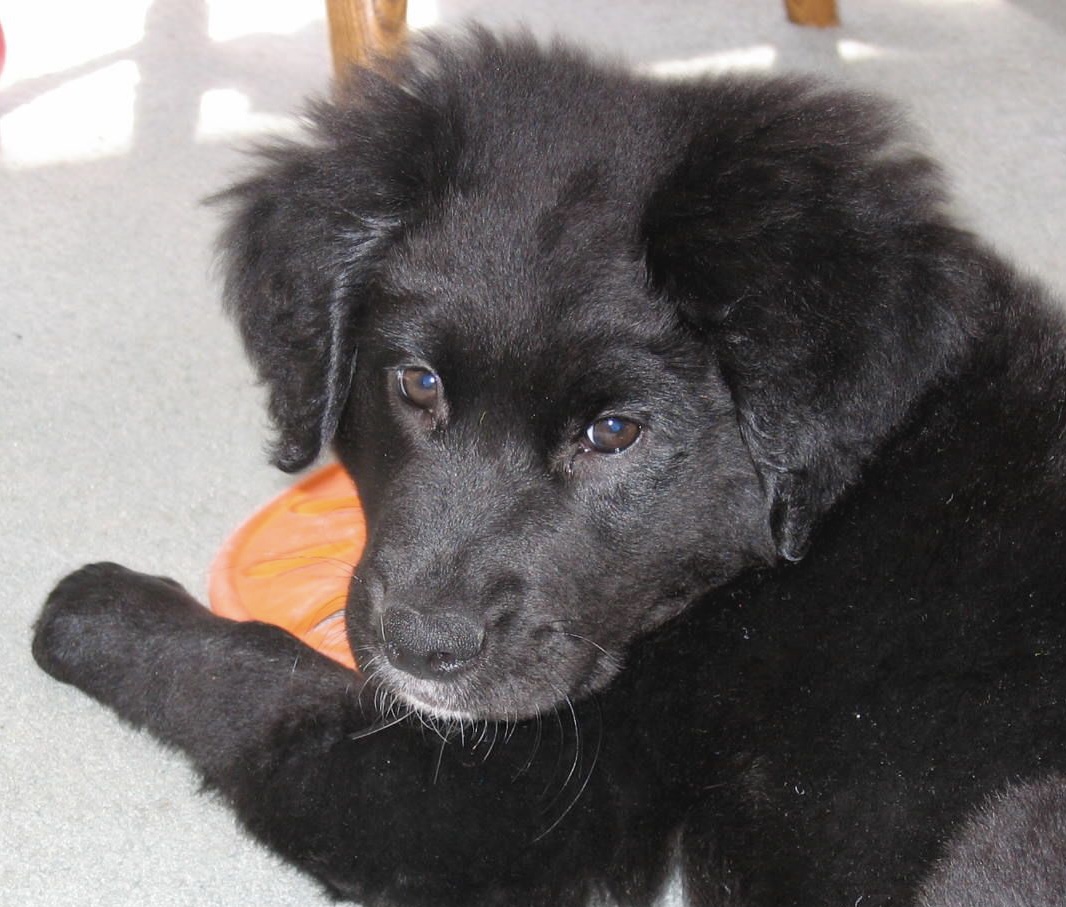 A fuzzy ball of black fluff. They told me he was part Labrador retriever and part Australia Shepherd. The shepherd part wasn’t in question since he’d been with his mom when rescued, but as he matured it was increasingly clear he was more likely flat coat retriever than lab. I’d never heard of flat-coats when the vet mentioned that breed so I googled them and found they were considered the Peter Pan of the canine world, playing like puppies for most of their life. And he certainly lived up to that. Even on those last, painfilled days when struggling to his feet was a chore, he’d still bring me a toy and want to play tug of war with it. A fuzzy ball of black fluff. They told me he was part Labrador retriever and part Australia Shepherd. The shepherd part wasn’t in question since he’d been with his mom when rescued, but as he matured it was increasingly clear he was more likely flat coat retriever than lab. I’d never heard of flat-coats when the vet mentioned that breed so I googled them and found they were considered the Peter Pan of the canine world, playing like puppies for most of their life. And he certainly lived up to that. Even on those last, painfilled days when struggling to his feet was a chore, he’d still bring me a toy and want to play tug of war with it.
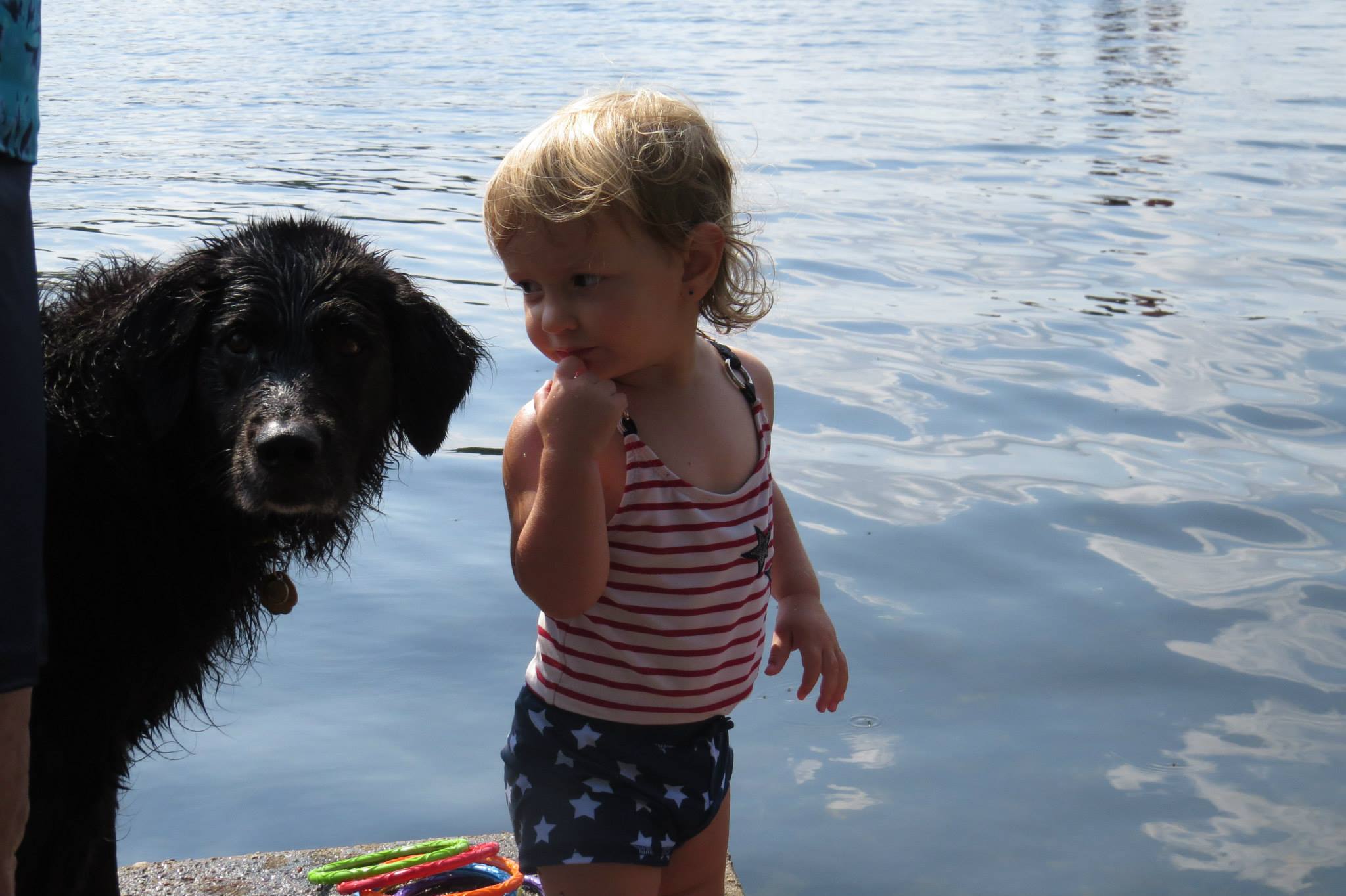 Duffy was torn between his genetic inclinations to fetch and herd. When my grandchildren were small, he’d Duffy was torn between his genetic inclinations to fetch and herd. When my grandchildren were small, he’d  try to round them up and keep them away from dangerous things like water and streets. He’d gently put his mouth on people’s wrists as if he wanted to show them something or take them somewhere. But fetch was more like keep-away. Once you’d thrown the ball or toy, getting it back was the challenge and he loved teasing you, seeming to offer the toy, then snatching out of reach at the moment your fingers closed around thin air. He outgrew the herding thing, or perhaps it was my grandchildren who outgrew his thinking he needed to protect them, but he never outgrew his desire to play and he always enjoyed being with my grandkids. try to round them up and keep them away from dangerous things like water and streets. He’d gently put his mouth on people’s wrists as if he wanted to show them something or take them somewhere. But fetch was more like keep-away. Once you’d thrown the ball or toy, getting it back was the challenge and he loved teasing you, seeming to offer the toy, then snatching out of reach at the moment your fingers closed around thin air. He outgrew the herding thing, or perhaps it was my grandchildren who outgrew his thinking he needed to protect them, but he never outgrew his desire to play and he always enjoyed being with my grandkids.
  Swimming was another of his favorite things. Any game played in the water at the lake always included him, and he especially liked it when it involved things that got tossed back and forth like frisbees that he could snag and carry ashore. The waves at the ocean didn’t faze him in the least. On hot days, he’d walk in up to his belly, sit down facing the shore and let the waves break over his head. If I went in, he was game to swim at my side, for as long as I wanted to be out there. Swimming was another of his favorite things. Any game played in the water at the lake always included him, and he especially liked it when it involved things that got tossed back and forth like frisbees that he could snag and carry ashore. The waves at the ocean didn’t faze him in the least. On hot days, he’d walk in up to his belly, sit down facing the shore and let the waves break over his head. If I went in, he was game to swim at my side, for as long as I wanted to be out there.
 At home, he elected himself the welcoming committee for our neighborhood and since there are a number of rentals here by the beach, he was always making new friends. Everyone knew him and he knew everyone. But he was also my self-appointed social director. It wasn’t enough for him to greet folks passing by our little bungalow on their way to the beach. Once he’d greeted whoever was out there, he’d hurry inside and thrust his nose under my wrist, interrupting my typing and insisting I get up and go out to chat with whoever had stopped by. At home, he elected himself the welcoming committee for our neighborhood and since there are a number of rentals here by the beach, he was always making new friends. Everyone knew him and he knew everyone. But he was also my self-appointed social director. It wasn’t enough for him to greet folks passing by our little bungalow on their way to the beach. Once he’d greeted whoever was out there, he’d hurry inside and thrust his nose under my wrist, interrupting my typing and insisting I get up and go out to chat with whoever had stopped by.
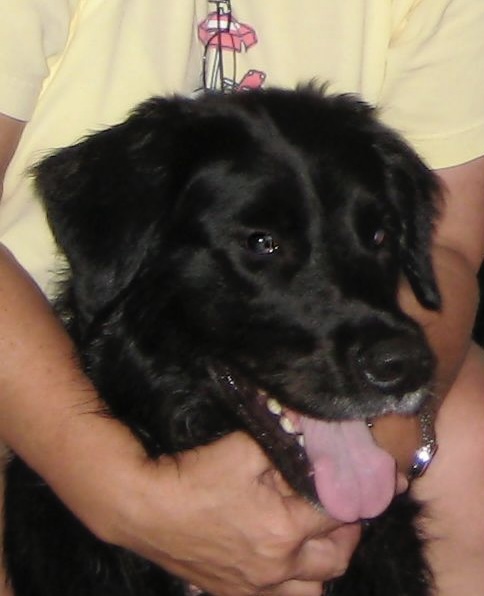 Often, for no particular reason, He would push his head between my thighs. My brother informed me this was a doggy hug. And, perhaps it was. Duffy did it often and it sure felt like I was being hugged. That along with the eager, tail-wagging welcomes every time I’d been out for ten minutes, ten hours or ten days, made it clear how happy he was to see me. Often, for no particular reason, He would push his head between my thighs. My brother informed me this was a doggy hug. And, perhaps it was. Duffy did it often and it sure felt like I was being hugged. That along with the eager, tail-wagging welcomes every time I’d been out for ten minutes, ten hours or ten days, made it clear how happy he was to see me.
And now that he was gone, my heart and my home were going to be horribly empty.
So, I’m never getting another dog. How could I ever find another canine that special? I could never replace the love, acceptance, and joy that nearly fifteen years with Duffy brought me.
 It’s been two months and still . . . when I out of my recliner to head to bed at night, I want to bend down to pat his silky black head. It seems impossible he’s not sacked out there in front of my chair where he’s always been, and come morning, there’s no one eager to share my breakfast eggs. I haven’t skipped our midnight walks, though. Even on rainy nights, I’m out there making our usual rounds, remembering how he stopped here to add his calling card to a favorite clump of sea oats, or there to sniff along the ground to see who else had been by. I still slog through the soft sand near the sea wall when I go to the beach because that’s where he was most intent on sniffing things out. But then my heart aches when I remember I will never again feel the softness of his fur brushing against my bare skin as he walks close to me in the dark. It’s been two months and still . . . when I out of my recliner to head to bed at night, I want to bend down to pat his silky black head. It seems impossible he’s not sacked out there in front of my chair where he’s always been, and come morning, there’s no one eager to share my breakfast eggs. I haven’t skipped our midnight walks, though. Even on rainy nights, I’m out there making our usual rounds, remembering how he stopped here to add his calling card to a favorite clump of sea oats, or there to sniff along the ground to see who else had been by. I still slog through the soft sand near the sea wall when I go to the beach because that’s where he was most intent on sniffing things out. But then my heart aches when I remember I will never again feel the softness of his fur brushing against my bare skin as he walks close to me in the dark.
I got almost as many sympathy cards for MacDuff as I did when my dad passed away two years ago. I have them hanging on a ribbon in a doorway reminding me how much my friends care, but they also remind me how many people knew and loved Duffy. How could I possibly replace a dog like that?
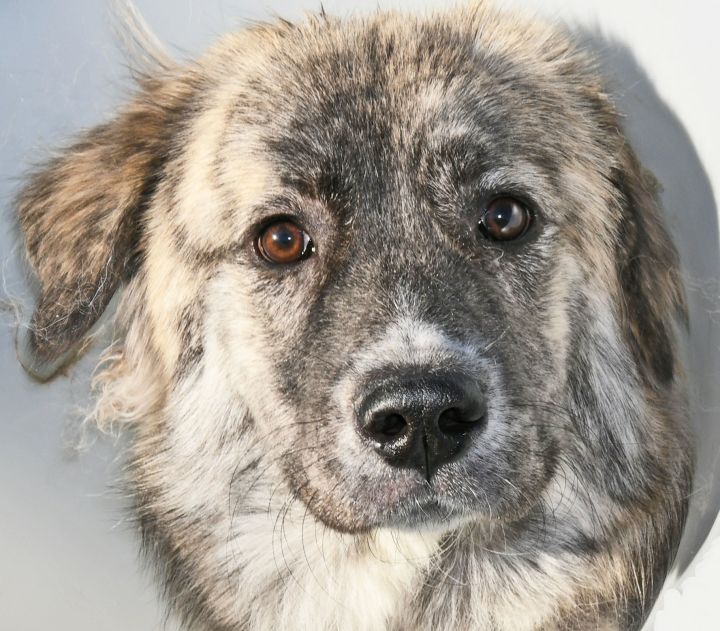 . . . . . . But then I see a face like this one, and I realize it’s not about replacing Duffy. It’s about offering another dog a fur-ever family and finding joy again in the wagging, comforting love of a canine companion. (Sadly, this adorable pup was adopted before I got to the shelter, but there will be others....) . . . . . . But then I see a face like this one, and I realize it’s not about replacing Duffy. It’s about offering another dog a fur-ever family and finding joy again in the wagging, comforting love of a canine companion. (Sadly, this adorable pup was adopted before I got to the shelter, but there will be others....)
So . . . maybe I will get another dog . . .
Thank you, Duffy – for teaching me about unconditional love, the joy of an eager welcome, a warm body to cuddle and the solace of a wet tongue to lick away tears when life gets tough. Maybe it is time to share my bungalow with another extraordinary fellow like you.
XX
For your holiday reading pleasure - hop on over to see what these other authors have for you today.
XX
Anne Stenhouse
Victoria Chatham
Diane Bator
Helena Fairfax
Dr. Bob Rich
Connie Vines
Fiona McGier
Margaret Fieland
Beverley Bateman
Rhobin L Courtright
|